#given how much the game seems set to underline that the point is to save the community
Explore tagged Tumblr posts
Text
The Pelle/Dani Receipts, Post Six: Dani’s Birthday Plot
[tents fingers]
Now, Pelle finally has Dani all to himself. Yessssss. And he wastes exactly NO TIME passing to her an unfolded piece of paper he’s been keeping tucked away, with a nose scrunch (I’m sorry, it’s adorable) and a soft, surprise “Hey. Happy birthday.” Yes, Dani, someone remembered. Actually, someone spent a good deal of time carefully drawing a beautifully realized pencil portrait of you, complete with a flower crown and runes. Someone has been thinking about you kind of a lot, girlfriend of someone’s friend. How do you think he drew that? From memory? Do you think he has pictures of you? Anyway, Dani is thrilled and surprised and just so happy, which is also kind of telling. Real talk: he has effectively cornered her and privately given her a fairly personal gift, which he will encourage her to keep secret (more on that in a second). If she weren’t receptive, it could be creepy or at least awkward. If she weren’t into it, can you imagine how weird the rest of the festival could be? And this is the first day. But you are into it, aren’t you, Dani?
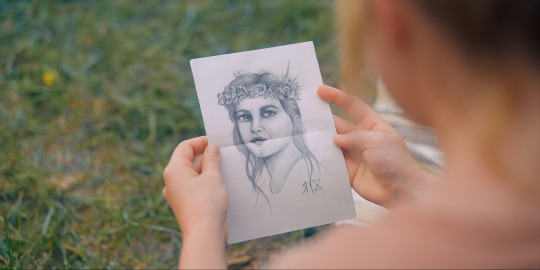
“It’s just something I do for birthdays,” Pelle smiles, and then he hesitates, as though the thought has just occurred to him. “Maybe it’s not appropriate?” Okay, Pelle, sweetie, forgiving the fact that were you actually concerned about whether it was appropriate to give her this, you probably would have mentioned it to Christian and/or not taken scrupulous care to give it to her on the downlow, why wouldn’t it be appropriate to give this gift? Because it could be construed as romantic, of course. Because it is pretty darn romantic. This is how I see you, Dani. But in asking Dani whether it’s appropriate, master manipulator Pelle is using the rhetorical device of apophasis, suggesting something by not suggesting it, basically, “Here’s a romantic thing, Dani. Do you mind? It’s not romantic.” SURE, PELLE. And then he suggests that they keep it “just between us.” Okay, Pelle, so if it’s an appropriate gift, offered purely in the spirit of friendship, no big, you’d do it for Ingemar or Josh, why keep it secret? His rhetorical moves here swing from denial to affirmation, throwing out mixed signals like a motherfucker to both assure Dani of his feelings and continue to provide plausible deniability.
But then, Dani gamely accepts his terms, agreeing to keep the portrait between them...like that's no big deal. Consider for a moment what is implicit there. Christian can’t know. Why can’t Christian know? Is it because Christian is unusually jealous? There’s no evidence of that; he just left his girl alone with Pelle. It’s because this is the first (that we know of) exchange in an emotional affair, and while Pelle has given her plenty of plausible deniability, Dani isn’t even tentative about it. Yes, this is our secret. Remember how happy she was talking to Pelle on the couch in New York.
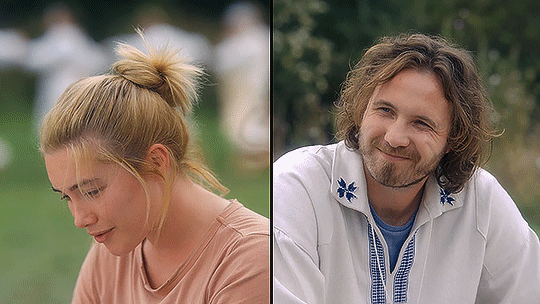
Then Dani, smiling as genuinely as she only does for Pelle, confides in him that Christian forgot anyway. So, not only does she alleviate Pelle of any suggestion of inappropriateness--which is less accepting that it isn’t a romantic gift and more that she tacitly accepts the gift with all its implications--she directly compares Pelle remembering her birthday to Christian forgetting it. This moment gets glossed over in favor of Pelle’s much more overt seduction of Dani, but please notice: Dani is comfortable with admitting something that personal about her relationship with Christian to Pelle. If he were just an acquaintance, if he were closer to Christian than Dani, why would she tell him that? It would be embarrassing to her and awkward for him as Christian’s buddy. Exact words: “Christian forgot anyway so this [portrait] is amazing.” Christian forgot, you remembered, 1 point to Team Hårga. Not to mention telegraphing your relationship woes to a man who just gave you a romantic gift is a considerably less subtle signal than Pelle’s apophasis. We’re not suggesting that Dani is unambiguously, consciously, deliberately lighting her signal fire for Pelle here...but witness. The signal fire done got lit.
One more important bit about this scene. As we will point out over and over, Dani mirrors Pelle and the other Hårgans a lot, but also notice that when Dani shares that Christian forgot, Pelle perfectly mirrors Dani’s stunned/upset “oh” when he failed to condole her on the couch in New York. Like her “oh,” Pelle’s clunks loudly to the floor between them, interrupting their whole ambiguously flirty groove, but, for Dani/Christian severance purposes, it’s important he does this. Constitutionally empathetic as he is, Pelle could easily buffer the awkwardness of the moment, but he doesn’t. He doesn’t do anything to help Dani rationalize Christian forgetting. He simply reflects back to her discomfort and shock that Christian could be so callous of her feelings, leaving Dani to inadequately flail for excuses. In the end, she can’t excuse him, and so she re-ups her appreciation for Pelle’s gift once again, but she will leave that scene not only knowing Pelle cares, but having been forced to acknowledge, if only to herself, that Christian apparently doesn’t. Nice work, Mr. Pelle.
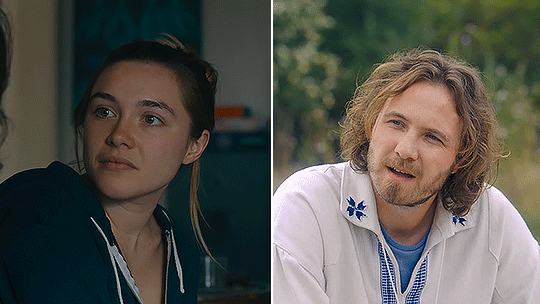
But Pelle is not done. Not our soft sweet cultboy. Skipping ahead to Pelle showing everyone the Youth House, he takes Christian aside at his first opportunity. We aren’t privy to a lot of his conversation, as the camera follows Dani to the wall of portraits of the May Queens, but we do catch the very end, up close and out of focus, as Dani also seems to key in on their talking covertly. Christian is aghast, as Pelle is telling him that he has forgotten Dani’s birthday. He asks Pelle if Dani said anything. And this is when Pelle tells one of his very few direct lies in all of Midsommar, assuring Christian that Dani didn’t mention it. This is important. Ari Aster blurs a lot of what Pelle knows when, but he wants us to know something unambiguously here, a rarity for this film: this isn’t a kindness gone awry. Pelle is setting Christian up. [grabs megaphone] PELLE IS SETTING CHRISTIAN UP. When Dani interrupts them with a question, Pelle nods and gestures significantly toward the bed before joining her, showing Christian something we can’t see.
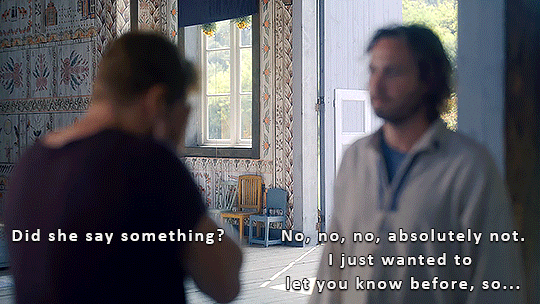
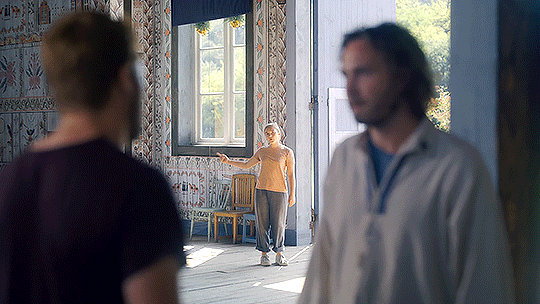
As Pelle explains the May Queen dance competition, Christian gathers himself and then he asks Dani if she can join him outside, hiding something behind his back. Cue off-key happy birthday serenade and Christian trying to light a candle with a bad lighter. The cake, candle, and lighter could only have been provided by Pelle. That is presumably what he’s pointing out to Christian on the bed before he moves over to Dani by the May Queen photographs. It’s orchestrated to be obvious to Dani that Pelle is the real person behind the gesture, because Christian would have had no opportunity to arrange it. And of course, she saw them talking right before. After Pelle’s thoughtfulness, it will be obvious to her, and Pelle’s cover-story of arranging this to save Christian’s forgetful hide just makes it all the more apparent that he forgot. So Pelle might look like he tried to be a good friend to Christian, but he’s clearly presenting himself as a much better friend, maybe more, to Dani.
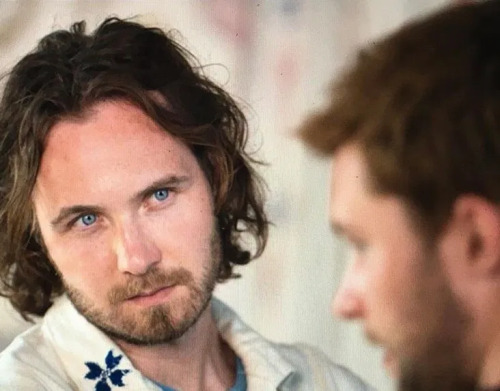
We also headcanon that Pelle made the lighter intentionally bad by emptying most of the fluid, thus making Christian’s insincere gesture all the shittier. The fact that he has to flounder with the bad lighter just underlines that he hasn’t prepared at all. Meanwhile, in the background, several Hårgan women sway and soothe a baby, foreshadowing the way Dani will be comforted when Christian betrays her in the Maja impregnating ritual.
For more, click on The Pelle/Dani Receipts Masterpost
185 notes
·
View notes
Text
Seeing Red
I was drawing today and reminded somehow of that depressing development where the sister of David & Samantha Cameron has been appointed editor of the Evening Standard. Like, I’m looking past the implied wider corruption problems in ‘real’ journalism here, but one point she said in her announcement interview really bothered me. She said, something to the effect of ‘Oh, thank god I spent 20 years working at Vogue while David was in politics, because I am just so fond of him and I would hate to have to be critical of him. So I was safe at Vogue.’
That, right there, sums up how far fashion media is from even being able to recognise the functional role of journalism. Oh, thankfully, at Vogue we can hide from criticality and awareness of the political dimensions of the world. All the while, the fashion industry is feeding this planet-killing spirit-crushing capitalist consumerism. But, no, why would it be political? Stop making it political. It’s just clothes.
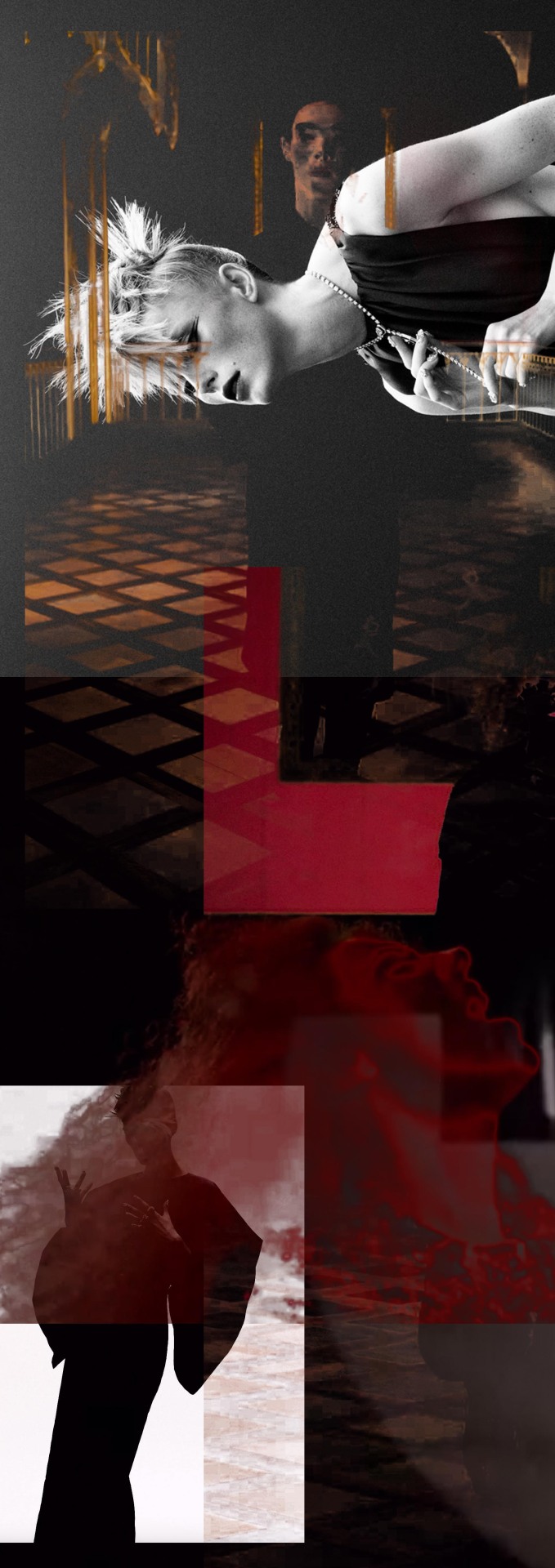
K, I’m going to RANT a little about these digital fashion weeks we’ve just been subjected to. I’ll preface by saying, yeah, I get it, it’s hard to be creative in the thick of a pandemic. My standards have been accordingly lowered 20%. I am very generous.
Chanel and Dior’s lack of energy was no surprise. Although, keeping in mind female designers tend to be more pragmatic as a matter of course, it’s sad the two top women are being so listless. I was pleasantly surprised by Azzaro – it gave a hint of a vibe but was sure of itself. It emphasised that there was no reason for the Chanel & Dior videos & collections to exist, no point of view. The smaller couture players like the Dutch trinity of Ronald van der Kemp, Iris van Herpen, and Viktor & Rolf were a little more canny, you got the impression they were enjoying themselves at the very least.
Regarding men’s, I do think Rick Owens was actually well judged in its boringness – we don’t need product-based experimentation necessarily. I enjoyed the meta-narrative aspect, it seems to me a good time for that kind of subtle, slightly snide interplay of references. Yohji’s design’s really sang, the video could have worked harder, it felt thrown together and didn’t do the clothes justice. (Side note, that showstudio Yohji review video, 45 mins of failing to say anything, was what finally pushed me over the edge. Dude. Are you guys for real? ‘Where is the avant garde’? If you don’t know, give up already. I’m not even a Yohji fanbear but he deserves better.) Kiko gave us a real stab at a pscho-medieval vibe, and I would’ve written a full review about it cus there’s stuff going on there. But fuck that. If he doesn’t want to talk to us, and show his full vision to the public in a spirit of optimism and faith in the culture, why should I bother with him? Mean and snooty gatekeeping gets mean and snotty graffiti right back.
Fashion culture (twitter, specifically) wants to be wowed by everything all the time. Then, it complains and says why is fashion week even happening during a pandemic, now isn’t the time for fashion. Another example of our schizo cognitive dissonance as we consume this shit. What do we even want?
I’ll tell you what I want. I want fashion designers to be engaged in a collective speculative in-depth discussion of what the future feels like right now, as an artform. So, I’m not going to analyse anything as a commercial proposition, because the future features less and less buying shit. In part as I believe that with growing internet dispersal of OG systems, awareness will rise, the vocabulary will expand, and we’ll stop caring so much about the performative aspects of fashion clothing. The interiority aspect will only grow, and that means unique-feeling experiences that are like conversing with a familiar presence. The fashion designer as moot, a parasocial meta-commentator. A friend you don’t actually have to talk to, just talk with, in the culture. That process won’t start from a point of ‘buy my shit’. First, a relationship should be built up, set up and running along. Then, if product occurs it’s incidental. Wow, I’m being a real little weatherbear. Check out my prophecies!
So, I’m pretty disappointed and depressed about the resentful undertone of much of the work presented to us. Like, they’re crossing their arms and getting all grumpy about how they’re not allowed to carry on like they always do. FFS, you’re FASHION PEOPLE. Change is the name of the game, this shit should excite you. It’s your job to guide each other in an open-ended perusal of future possibilities, and to make recommendations. It’s not just clothes, they’re the medium, the language in which you build the commentary. If all you care about is nice product (*cough*, hedi slimane, *cough* jacquemus), stop calling yourself a fashion designer, because you’re a clothing manufacturer and I don’t care about you.
Why are all these videos so boring? Have any of these people heard of editing, rhythm? They do realise you can hire people for this kind of thing, right? The deadening lack of imagination amongst people whose full-time job it is to be creative about the present’s transition into the future is astounding. This really underlines the risks of nepotism and gatekeeping. The only people who can afford to participate are the gutless products of a bloated upper middle class. I don’t believe in that class’s creative capacities for one fucking minute. They’ve got nothing at stake, no guts to go against anything, because their boring shitty system works for them, so why should it change? Ugh, vom.
Where is the communicative power? Nothing is being said, it’s filler for an elite determined to go down with their ship. I’m glad it’s sinking, it wasn’t fit for purpose and I’ll happily stick some extra holes in to make it sink faster.
I’m going to single out Jonathan Anderson again. Listen, he’s a little pretty boy who’s working so effectively within the system, who has played the game perfectly to the best of his ability. His work is top level, he wins every time. So, I reckon he can be held up as an example. He can take it. I’m looking at the box-shows he did for Loewe and his own brand, and I’m thinking, oh that’s such a lovely take on alt fashion communication. So much heart, and care. Then, what’s the internet equivalent? A little video showing off the box. Some 3d shots & backs of looks and boxes. A little extemporised pitter patter from Jonny. That’s it. It’s still classist as fuck. With garment design there’ll always be limits on what’s possible in terms of digital translation. This isn’t actually garment design though. It’s fashion design. If I’m stuck with a low-grade clip and some jpegs, it’s pretty clear to me you don’t care about your wider fashion community. There should be an open digital experience that feels equally cared for and crafted. And here’s where I get really angry: all these fashion journalists have been delivered this unique, beautiful experience, and what are they doing with it? Where is the thoughtful response? Every single one of these people in this privileged position should be DOING THEIR JOBS (WHICH THEY ARE PAID TO DO, FULL TIME) and WRITE ABOUT FASHION. Not post online, ‘omg lovee ittt, so cutee!’. Anyone can do that. Are you a fan or a professional? This is an embarrassment. I’m stuck analysing some pixels. You’re getting the ‘real’ experience. I know I’ll never be an insider given these opportunities. I chose this path and I’m not going to try and play that game, because the rules are: you get access, in exchange for sacrificing criticality. Because these people, as educated and privileged as they are, don’t understand the value of criticism. Good criticism, the detailed, even handed, unafraid kind, pushes the culture forward. You can’t have a healthy art form without it, it’s essential because it’s the back in the back and forth. I probably could’ve tried to play their silly PR game a bit harder. But I had a nervous breakdown, in part, because I knew I would never be allowed to get close to the art enough to analyse it fairly if I spoke freely as I do now. And freedom is essential. So, pixels it is. Rudeness it is. Because there is work to do to salvage the bottom-dwelling wreck of our fashion dreams so that maybe we can travel somewhere new and better with them. It just sucks that there’s people standing there with the tools to help and no desire to save themselves or anyone else.
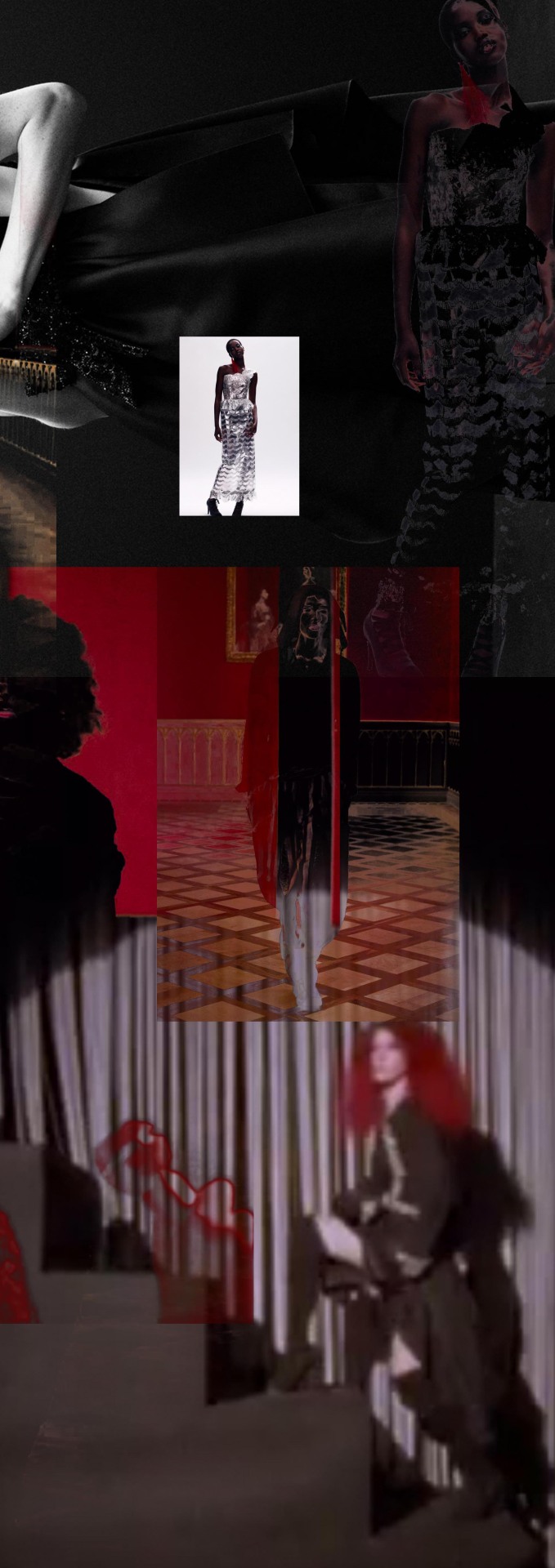
1 note
·
View note
Text
Thoughts on ‘The Beginning’
So - as with The Trial of Jim Gordon, I'm going to regard this episode as an extra, and do some meta as opposed to a full recap. My rationale is pretty much the same: this is an optional easter egg, and one that can easily be regarded as outside canon if desired.
Also - I found the deeper message, like that in The Trial of Jim Gordon, was so unpalatable it strained the show’s broader ideas and themes. So I’ve decided it’s not part of canon, for me.
Thoughts after the cut. Same disclaimer as with The Trial of Jim Gordon. I love the show. I tweeted like a maniac as episodes were airing, and got booted from Twitter. I want another network to pick it up.
However, my idea of meta is the old fandom one, which is critical analysis. If that’s not your thing, fine - but that’s what I’ll be doing here.
So, first things first.
I understand the rationale behind the time-jump, to an extent. The two extra episodes were just that - extra. One was spent on The Trial of Jim Gordon, which I have already been salty about in another post. This one was a sort of nod to the fans - offering Batman as a sort of reward. I’ve always been more interested in the story Gotham actually set out to tell, though, the story before Batman. The story of the city and its inhabitants. As such, I was always going to be less taken with an episode which was fundamentally mostly interested in giving us Batman.
But there were a couple of other issues that confused me. Gotham has always presented its own vision of the city, the characters. It’s shown it can be creative with canon, as well as adding its own ideas. Not only, for example, is their take on Oswald unique, but Fish Mooney – so pivotal in his development – only exists within Gotham’s universe. We got the Executioner and Cyrus Gold – yes, but we also got Nathaniel Barnes and Butch Gilzean, who had character and stories and lives all of their own.
I like that it thumbed its nose at Jim’s moustache. But go all the way with it. Yes, we know Batman’s coming. But if you want to continue to focus on Jim, and his wrestling with the notion of heroism – then just do that. Have the courage of your convictions. You can draw inspiration from the 60s series if you want, but you’re not shackled to it: Oswald doesn’t have to don a top hat and become 60s Penguin if you don’t want him to. The city doesn’t have to morph aesthetically into something we saw in the movies. You’ve told your own story. See it through.
That aside - the details.
The flash-forward was also a difficult ask because the story has been unnaturally cut short. Characters who were still wrestling with huge issues didn’t really get to address them in a truncated season and - as such - it’s sort of hard to accept where we find them now.
For example
We’ve seen Jim deal with several demons over the years. He has major issues with authority. His relationship with his father looms large. He wants to be a hero, but gets on better with the villains. He compartmentalises like crazy. He’s emotionally dishonest with others and himself. He enjoys playing dangerous games. He can’t resist a pissing match.
Am I to honestly believe that Jim has been entirely clean and pure in the interim? Why? Because the city was saved after near destruction? That’s happened before – he didn’t change. If anything, he’s more likely to have reverted to old habits once the crisis was over. Is he reformed because he’s a father now? Didn’t stop him killing Theo Galavan while Lee was pregnant.
Jim’s development was still very much in progress. As such, he feels unsatisfying here and - given what we know about him - you can’t help but feel he’s probably been up to his old tricks, but we’re just getting to see the sanitised surface of his life.
Lee likewise generally suffered quite a bit from the truncated season, and is good example of how the flash-forward doesn’t serve characters well.
In season 4, we saw her explore a darker side to her personality that the show has strongly and consistently hinted at since way back in season one, explicitly – when she says that Jerome’s confession of matricide thrilled her, and implicitly, when we wondered why the hell she was working in Arkham. We also saw her enjoy power in season 4. We saw her deeply committed to improving the lot of the residents in the Narrows, even if her way of going about it was short-sighted. We saw her shoot Sofia Falcone point-blank in the head in cold blood. We saw her, although many hated it, form an intense romantic relationship with Ed, where she seemed to find a fulfilment and recognition that she never found with Jim or Mario.
However, in season 5, the show clearly needed her to quickly step into the role of Mrs Jim and stepmother to Barbara. This meant becoming the angel at the hearth again, so it essentially erased those experiences, all that new characterisation.
As such, like Jim, she feels flat here – like we’re only getting to see a facade. She’s back in her old post of intermittently saying supportive things to Jim, and apparently quietly looking forward to him quitting his job. When she's bizarrely given the task of defusing the bomb, as Lucius the tech specialist stands by the side - it really only underlined that stripping her of all that history and characterisation meant that she doesn't really have a real role of her own in the wider workings of the city.
Now to the heart of my problem with this episode.
We’re told, without any explanation, that Oswald was sent to Blackgate shortly after reunification, and Ed to Arkham.
Now, to be honest, I find this fairly implausible. In all the rebuilding efforts, I doubt the authorities would have the will or energy to go back and rake over who committed what crime when the city had been abandoned by the government. And even if they did, both their actions – willingly manning the barricades (Oswald sustaining an injury when doing so), would have likely gone some way to mitigating everything else.
You could argue that it's for some nameless crime they committed later - but the show could easily have indicated that by throwing in a line about some heist or scheme they tried to pull off that ended up with them being put away.
Mayor James - ‘Oswald Cobblepot is getting released tomorrow’
Harvey - ‘Should have got 20 years for that stunt he pulled after reunification - not 10. So should Nygma.’
It didn't take the trouble to do that - so I'm left assuming they were sent away on the basis of crimes committed during the split.
However, this poses us with some problems both in terms of the plot, and more deeply in terms of narrative repercussions. Because if we are going to start to get persnickety about charging people with crimes they’ve committed, and then having them face actual consequences – well, we saw Barbara shoot loads of randoms in season 5. Going back not too far, Lee shot Sofia Falcone in the head. Going back further still, Jim murdered Ogden Barker and Theo Galavan, and was indirectly responsible for several deaths by inviting Sofia Falcone to town.
So – then – if we’ve decided that actually charging people and sending them to prison is now the done thing, why are we so selective with who’s punished? Gotham is a show with a million shades of grey. It gives its villains humanising back stories and motivations – but it ultimately still wants to punish a select few like it’s a black and white universe. You can’t do that when your good guys are equally tainted. Not unless you want to give off an unfortunate stench of hypocrisy, anyway.
Oswald flat-out asks Jim on the pier. I could have escaped this city. I chose to stand shoulder to shoulder with you and defend it. Why was I punished?
It’s telling that Jim never actually furnishes Oswald with any good answer to his question on the pier. Because - over the years - the show itself has never quite figured out how to answer this one. He can’t answer. What could he possibly say?
Why then, do some get away scot-free, while others are punished? Why, as Ed observes, do some get to make choices - while others never get the chance?
Jim and Lee are ‘heroes’ (arguably wandering into designated hero territory, at points). They're never going to face consequences for anything. Jim going on a self-pitying drinking binge doesn’t count - not compared to a ten-year stint in Blackgate or Arkham. Lee never expressed any remorse for Sofia.
As for Barbara, well Barbara is brought back into the heroic fold, too.
First and foremost, she’s offered moral redemption by bearing Jim’s child. Becoming a mother meant all previous sins were forgiven.
When we meet her here, we see now that she’s wealthy and powerful – playing a serious role in the city. It’s empowering in a way – but it’s also a means of re-affirming the established order and putting her back in her box. Remember that Barbara is from one of Gotham's elite families - and she's finally behaving like someone from an elite and wealthy family would do. To make her position clear - she’s explicitly placed in the same category as Bruce here in terms of her wealth and control of the city. I’m assuming that pregnancy also made magically clean whatever money she used to buy up the city when it was on its knees. She didn’t seem to have access to her parents’ cash before now - so she must have used her ill-gotten gains.
(I would argue that strategically buying up parts of the city post-reunification is screamingly Oswald, but like other chunks of his characterisation and storyline, it got sent Barbara’s way in season 5 in a bid to flesh out her character)
Last up, she’s not demanding a romantic relationship with Jim anymore, but they’re now forever safely tied in that context due to their daughter - there’s no mention of Tabitha, or casual mention of a new partner. Troublesome, restless Barbara, poor little rich girl – demanding of Jim’s time and attention, namelessly unhappy, and with a murky ‘past’ is now ‘fixed’ and neutralised.
Thinking about those brought into the fold necessarily asks you to think about those who were excluded.
Oswald might have roots in an elite family, like Barbara, but - crucially - he’s also one part poor immigrant (as well as all his many other markers of 'otherness'). He can’t escape this - we got his jangling east European music as soon as we saw him in this episode, and we were reminded of Gertrud when he said he would lay flowers on her grave as his first act after his release.
Ed’s background is unknown, but we can safely hazard a guess that there’s no moneyed upper-class upbringing there. He was also willing to step up when it counted, and was even used by those in power for their own ends during the break – but none of that counts for anything, apparently, and he finds himself in Arkham. You could argue that Ed is unwell, and needs to be in a hospital – but Arkham is not shown as a hospital in any meaningful sense in the show. It’s an oubliette, where you send those you just can’t be bothered dealing with. It doesn’t look any better here than we’ve seen it before. Why hasn’t anyone tried to improve it? Again, they don’t have to succeed - if you’re determined to stick to canon, but why not suggest that Jim or Lee or Lucius has at least tried to have conditions improved or an official review launched into treatment of inmates? It would go a long way to nodding to the long and complex histories these characters have. However things ended – Lee and Ed had a pretty intense relationship. They cared about each other. She can sleep at nights knowing he’s in Arkham?
Jeremiah might have been clever enough to win himself a scholarship and a way out of the circus – but it’s not enough to enable him to escape his past – either explicitly, when he was hunted down by his resentful brother, or implicitly – when he winds up in a similar situation to the other outsiders. Yes, Jeremiah might have been manipulating the situation – but he was still sent to Arkham and left vulnerable to casual abuse. Whether it’s intended or not, Jeremiah’s accusation of abandonment can be read more deeply. Bruce left town - but, just like Oswald and Ed, the city in general abandoned him.
Selina’s an example who, I would argue, reinforces that this moral order of the universe. She's always been depicted more ambiguously - capable of villainous acts, but tied to the heroes through her bond with Bruce. This is reflected in what we learn about her here. Like Jeremiah, she's been punished by Bruce's abandonment, but her grey heroic status means that she doesn't lose her freedom, despite living a life of crime.
So what picture are we painted of the city?
Aubrey James is back in charge - corrupt as Oswald ever was as mayor, but less competent. The city’s remains were picked clean by Barbara - it’s now seemingly largely owned and controlled by two scions of the city’s elite. The commissioner’s got more than one murder to his name. His wife has one attempted murder to hers - giving her the benefit of the doubt and assuming that Sofia’s still in her coma. Arkham’s still a hellhole.
What does all that say? Like I said before, you can argue that this was the inevitable endpoint – but you’ve changed the story already, so that doesn’t wash.
What you’re left with is the outsiders comprehensively punished. You can sacrifice your chance at escape and an easy life in favour of standing shoulder to shoulder to defend the city, you can be unwell, you can be a victim – doesn’t count. No matter what you do – you’ll always be an outsider anyway. You can’t win for losing. Some are chosen, some aren’t. And if you’re not, tough luck.
So in this universe, why the hell not don a showy suit and your best hat and commit yourself to villainy? Go for it, I say.
(Yes - I’m aware this is more analysis than it warranted, and it really just wanted to say ‘look Oswald has a monocle and Batman’s here now!’ - but I felt the need for venting meta)
25 notes
·
View notes
Photo

EPISODE 2
“This was a great battleship in a time when great fleets sailed the seas, and there were wars among the nations of Earth. It sank during one of the last wars between countries. All war on Earth ceased when Gamilon began bombing us. We all joined against a common enemy. Now, the ship has been brought back to life again–not for the purpose of war, although we’ll no doubt see out share of battles, but to save Earth. The message from Queen Starsha of Iscandar offers Earth its one chance for survival. As you know, the radiation increases every day. Now, life on Earth has only one year left. We must reach Iscandar, get the Cosmo DNA, and return to Earth in one year. The Star Force needs you–and others like you!” - Captain Avatar
As the above oration indicates, the second episode of STAR BLAZERS spends its 23 minutes laying out the concept of the series–even when it has to bull through logic and common sense to do so (such as the sequence where Wildstar, Venture and Dr. Sane are ordered to report to a given location, leaving Nova behind–only to discover moments later that she’s arrived there before them in some mysterious, unexplained manner.)

Speaking of that particular air-car ride, it’s the first instance in which the series needs to disguise Dr. Sane’s obvious alcoholism. It does so in this instance by suggesting that the bottle of liquid that he’s downing so readily is “a new motion sickness remedy I’ve been testing.” In the early YAMATO episodes, Dr. Sane/Dr Sado was very much a comedic character, and in fact most of his scenes across the first half of the series ended up on the cutting room floor when YAMATO became STAR BLAZERS. But some, like this one, were too entrenched in the narrative of the episode to discard. IQ-9 invites himself along on the mission as well, speaking of his capabilities, which leads Wildstar to quip, “Better be smart enough to have a good alibi.”

Remarkably, this particular episode of STAR BLAZERS makes no secret of the fact that its signature battleship is the reborn Yamato, although it is the last episode in which that name will be uttered. It’s pretty remarkable, given the time in which the series was brought over, that this identification was maintained–especially given how easy it would have been to get around it. And in fact, the episode opens with an extended replay of the closing minutes of the first episode, in which Wildstar and Venture crash their purloined plane near the wreckage of the ancient warship and speculate about its secret. This was necessary to bring the episode up to the necessary American run-time after the largest single cut made to STAR BLAZERS–the extraction of a three-minute sequence, beautifully and sensitively rendered, depicting the final mission of the battleship Yamato. And it’s really no wonder. Beyond the fact that an American audience would have no cultural touchstone for these events, in the context of the sequence, the American pilots who sink the Yamato are the bad guys, for all that they salute the fallen ship as it goes down.

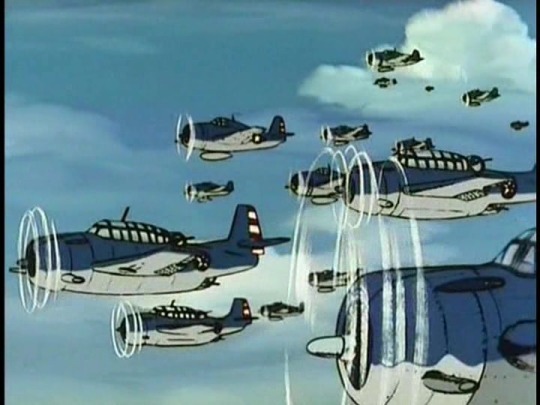




The production team of STAR BLAZERS made one other significant tonal shift from the source material. In YAMATO, the emphasis was on the ship itself, with the various crew members being simply “men of Yamato.” But STAR BLAZERS flips that emphasis on its head by making the focal point the crew themselves, who are christened the Star Force in this episode. (In fact, STAR FORCE was originally to have been the name of the series, but apparently there was a legal snag with using that name, so STAR BLAZERS had to be concocted.)
This led to a greater emphasis in STAR BLAZERS on the characterization of the crew members as individuals. Often, sequences in STAR BLAZERS which were silent in the original YAMATO airings were given dialogue, and the dialogue itself centers more on the people and what they’re feeling and going through than the original did. That’s very much to the benefit of STAR BLAZERS, and another thing that set it apart from everything else on the afternoon airwaves in 1979. No other program contained a similar depth of emotion.

This is also the first episode in which we get out first glimpse of the enemy, personified by the harried commander of a Gamilon aircraft carrier dispatched to patrol Earth and eliminate any stray resistance. He’s a pretty stock character, but the key take-away from him is that, at this point, the Gamilons were Caucasian–they wouldn’t develop their signature blue epidermis for ten more episodes or so, a late-in-the-game change by the YAMATO creators. As the carrier bombs what it believes to be the aperture of an underground city, the reborn Yamato is, for a long. suspenseful couple of moments unable to fight back, and its mission seems predestined to failure.

And then, on cue, auxiliary power is established, and the great ship rises up, breaking free of the encrusted sea bed and unleashing the power of its massive guns to destroy the enemy ship. And this is one of those instances where, try as it might (particularly in the earliest episodes) , STAR BLAZERS can’t hide the fact that the Gamilon commander has just been killed. We see him aboard his distressed ship just seconds before it is completely annihilated, and even though the specific moment of his demise is cut, it’s clear that he is both a living being and that he is done for.
This was another big dramatic difference that STAR BLAZERS evidenced. Though it struggled with it as the earliest episodes were translated and adapted (as we’ll see in the coming weeks) there was no getting around the reality that this was a ship of war in a time of war, and that there were going to be casualties on both sides. After the death of Alex Wildstar yesterday, the end of the Gamilon commander helped to underline the fact that serious, life-threatening stuff was going on here, and the stakes were absolutely life-and-death.

Because it’s so concerned with laying out the plot, Episode 2 does take a few liberties with character. Wildstar makes only a passing reference to his brother’s death (”I’m proud to go with you, sir, and to serve with the Star Force, as my brother would have been!”), a thread that will come back up again the following day, and he seems completely on board with the notion of throwing in with Captain Avatar and kicking some Gamilon ass. His ambivalence toward Avatar and the circumstances of Alex’s end will resurface in the following episode, which gives the whole progression a herky-jerky quality.
We also get our first look this time out as the incredibly-popular Gamilon leader Desslok, here as pasty-faced as his subordinates. Voice performer Eddie Allen gives Desslok a unique cadence to his delivery–an odd choice that really serves to embody the character over time. He’s going for Boris Karloff, but ends up with something a bit more fey and unique.

This second episode closes by introducing one of the cleverest narrative bits in its arsenal–the episodic ‘countdown-to-extinction”. It’s such a simple thing, but it did so much to maintain suspense across dozens of episodes, as you would see the clock ticking down day by day as the Star Fore attempted to bridge space and retrieve the Cosmo DNA that can save mankind. At this point, the format of the series is set, and future episodes will go on to develop and refine it.
9 notes
·
View notes
Text
Lone Wolf - Chiyojo 2
Chiyojo had known from the moment her Uncle put on the hat that any potential in a career outside the academy was completely and utterly tanked. The blatantly covered up and ignored attempt on her life just a few weeks after his ascension pretty much clinched that deal given her ankles would never be fit for the wear and tear of field work anymore. She was lucky her vocal folds had only been damaged and not fully destroyed, she could still give her kids one hell of a lecture when she wanted to, provided she had a few sips of water intersped--but she just chalked up to proper hydration, none of her current students knew how close to death their sensei had come to within the supposed safety of their village walls.
To be honest, she’d rather keep it that way, let them be children while they were still in the academy. They had their genin careers to learn about the harsh realities of the leaf village they would one day inherit.
Still, she wasn’t exactly a career climber, but she knew that given her particular situation looking towards opportunities within the academy system was really her only option nowadays. So she’d worked hard and in spite of her young age, she’d climbed that ladder as high as she could for the time being, which was what brought her to her current task, processing the applications of injured field ninja for transfer to the academy. It was a mostly thankless job, but it got her brownie points for doing it without complaint and she was saving up every single favor she could.
Her and Suzume were stable enough for now, but they had plans to move out of their little one bedroom apartment into a larger one, or even a rental home if they could find one. Maybe near the Inuzuka district, they were so much more relaxed about couples like them and Suzume’s genin teammate was an Inuzuka who she was certain would be able to talk to someone for them. Any kind of extra hours she could work right now were a bonus, every ryo carefully counted and added to their moving fund.
Applications for injured chuunin and jounin weren’t terribly common, most shinobi held out hope that they’d recover from their injuries so they’d wait until they had no other options. It wasn’t really a reasoning that Chiyojo personally approved of for becoming a teacher, given that she’d chosen the task all the way back in her genin days but retired field ninja could be good teachers if the right ones were hired. That’s where the annoying part of the whole process came in, and the reason most people pushed the task onto those desperate for extra hours, background checks and interviews.
The man, Mizuki, had no possibility of returning to the field according to the medical details in his transfer request--And Chiyojo couldn’t help but wince in sympathy when she’d read that, she’d spent a good while in a wheelchair herself, and his recovery process looked grim. Even if he recovered the use of his legs, he’d probably be permanently bound to crutches. Chiyojo’d had her age to thank for her recovery process, the ‘accident’ had apparently stunted her growth a bit, but in a few more years she wouldn’t even need her cane to walk with on good days.
So here she was, waiting in an unused classroom because someone had made an inquiry about the application of said injured chuunin. It wasn’t uncommon, usually concerned friends or teammates wanting to come to give character testimonials about the applicant to help support their transfer case. Chiyojo hadn’t personally met Maito Gai before, though she knew of him from the village grapevine, and as far as she could tell, that was what this meeting would be about. The two had been on the same mission when Mizuki’s injury occurred, according to their paperwork and everything the teacher had heard about Gai led her to the conclusion that he’d be supportive of a teammates career change.
In her time as an academy teacher, Chiyojo’s experience with jounin were usually confined to determining genin teams and handing over academy files and assessments to said genin sensei. She knew well enough the eccentricities of some jounin, it was something of a joke among career chuunin, that you never quite did enough to get promoted in order to preserve your own sanity. Most everyone knew of Maito Gai’s bombastic reputation even if they hadn’t met him--So to see the man walk in with calm even steps and a frown threw Chiyojo a bit off her game.
“Shimura-san, I am Honored that you would see me on such short notice in regards to my teammates' application for a teaching position at the academy.” His voice boomed through the empty room. He certainly had the lungs of an orator, Chiyojo noted as she gestured for him to take a seat on the other side of her desk.
“It’s just Chiyojo, thank you. It’s nice to see a Jounin showing support for his injured subordinate. Mizuki’s application is still processing but as far as I’ve heard his background check has cleared,” She smiled warmly, it really was nice, and so was Gai from all the second-hand information she’d heard about him. It seemed like some of it was exaggerated, not the fashion sense but as an identical twin Chiyojo could appreciate the need to stand out in a sea of konoha blues.
It wasn’t an awkward or nervous movement per se as Gai settled in across from her. It was a stilted motion as if in any other situation it would have been accompanied by some sort of grander gesture but for now, he held himself back. It did nothing but raise Chiyojo’s hackles in concern, but she did not interrupt to demand an explanation, instead of letting the jounin speak at his own pace. “Ah, I appreciate your compliment but I am afraid that isn’t quite the reason that I’m here. It is regarding Mizuki’s application, but rather the fact that I have several concerns over his possible employment.”
Chiyjo’s smile dropped instantly and one hand busied itself pulling out Mizuki’s records and paperwork while the other snatched a red grading pen from behind her ear, “Please tell me any concerns you have, and be thorough; while I trust the chuunin in charge of these background checks there’s always room for human error and if we’ve made one then it needs to be fixed before it can affect our children.”
Finally, the smile she had been expecting the entire encounter burst onto his face--and she had to admit it was rather endearing in a way that reminded her of one of her students, “Absolutely! I Knew that The Nurturing Garden of Our Village Youth would take my concerns seriously. Thank You, Chiyojo-san!”
Well, her assessment of his oddities being over exaggerated was falling apart a bit, but he appeared to have his heart in the right place. Furthermore, given the fact that a jounin who certainly had better things to do than come to the academy on a weekday to report a concern he could have done through written means only furthered her positive opinion of him. “I take any and all concerns about those we allow to teach our children in Konoha. Please, don’t hold anything back, Gai-san.”
To say she had been expecting any of the information that Gai had to provide was an understatement. She knew he’d received his injuries from the ally of a missing-nin, and given her Uncle’s fixation and Gai’s presence in the mission she had been able to guess exactly which one. Young shinobi could be hardened enough but the idea that something he had said was provoking enough that the girl had crippled him while leaving his teammates virtually unharmed didn’t sit well with the jounin--And as she tore through seemingly minor complaints from former teammates in Mizuki’s files which had been previously brushed off in lieu of his otherwise spotless record, Chiyojo’s eyes narrowed.
Like hell she was going to let this man into Her academy, she’d break his legs a second time if he even looked too hard at the building. With the flourish that only a part-time desk ninja could accomplish Chiyojo notated and underlined every overlooked flaw and red flag within Mizuki’s application. The very end of his resume her eye caught one particular recommendation which she was almost certain was the reason for so many incidents lacking further investigation.
Dearest Darlingest Uncle Danzo.
The flash of killing intent for the briefest of moments was unintentional but the way the jounin before her immediately stiffened he’d noticed it. “Chiyojo-san?! I Fervently Apologize for Upsetting you with this information. Is it worse than I had anticipated?” And bless him, he actually did seem worried. Gods, some of the jounin running around these days were jokes, promoted toadies of her uncle’s but this man had heart and he’d spoken up in a village where that was an increasingly discouraged endeavor. Chiyojo would have to keep an eye out for Maito Gai, he was a good man.
“There’s nothing for you to apologize for, Gai-san. You have no idea how much I appreciate you coming to me, you’ve saved us a lot of grief by stopping this trainwreck of a human being from shoving his garbage pile of interpersonal complaints onto our staff.”
Like hell, she was going to make it easy for Uncle to shove some damned plant to keep an eye on her, or Hashirama forbid scout for his creepy little child soldier program that chewed up and spat out her broken mess of a sister. She couldn’t do anything immediately, she’d have to pull a few strings first, put her paperwork skills to use and dig up any records of Mizuki and see whether they were all scrubbed clean. If she could just get the names of his accusers then she could track them down and order some proper character interviews.
If her smile was a little sharper as she finally set her pen back down on her desk and steepled her fingers to lean her chin against them and get a better look at Gai, it wasn’t directed at him. The Shimura were a dour clan, and Chiyojo had always been the antithesis to the whole lot, but at that moment her smile could have matched her Uncle’s in the pure predatory glee of a hunter assured that its prey was walking directly into its trap and they only had to wait.
“On an unrelated note, Gai-san, have you ever considered signing up to become a jounin instructor?”
5 notes
·
View notes
Link
So I attempted a thing for Valentine’s Day... it became smut. Oops. Posted here but also over on AO3. Technically part of my bigger fic but works 100% as a stand-alone.
Chapters: 1/1 Fandom: Dragon Age: Inquisition, Dragon Age (Video Games), Dragon Age II Rating: Explicit Warnings: No Archive Warnings Apply Relationships: Anders/Dorian Pavus Characters: Anders (Dragon Age), Dorian Pavus, Minor Ser Pounce-a-lot Additional Tags: Fluff, Fluff and Smut, Romantic Fluff, Smut, Valentine's Day, Valentine's Day Fluff, A couple lines of sorta angst, because I can't just let them be happy, this didn't start out as smut but it happened..., Modern Thedas, Alternate Universe - Modern with Magic, Alternate Universe - Modern Setting, Summary:
It's been a long All Hearts Day for Anders (why can't people stop getting injured for one day?) but he comes home to a wonderful surprise.
All Hearts Day was a surprisingly busy time at the clinic: everything from burns, to stab wounds from jealous lovers, to injuries to more…sensitive parts of the body. It was much later then he’d hoped by the time Anders was able to head upstairs to his apartment. He felt guilty; he hadn’t even had the chance to call Dorian and planned to do that as soon as he got in. He knew Dorian was excited at the idea of actually being able to celebrate their relationship – something he would never have been able to do back in Tevinter.
He'd barely opened the door to his apartment when he stopped and looked curiously into the room. There was a table just inside the door which shouldn’t have been there. He sent his magelight up and increased the brightness to have a proper look around his apartment. There was wine. Candles. Food on the stove. And was that rose petals leading back to his bedroom alcove? Anders had to remind himself to breathe.
But where was Dorian?
As he shut the door, slipping off his coat, Anders heard a soft snore from the living room. Moving quietly to the sofa, he peeked over the back. The sight that greeted him was downright domestic and it made him smile. He hadn’t expected Dorian to be waiting in his apartment, but it was a happy surprise.
Dorian lay stretched out with a book sprawled on his chest having fallen asleep while he was reading, as he often did. He looked so peaceful when he slept. He was wearing the purple button-down shirt that was one of Anders’ favourites, and the earring Anders had given him on Satinalia winked from Dorian’s left ear. Anders’ smile widened into a grin when he noticed Pounce curled up on Dorian’s stomach wearing a red bow tied around his neck. Red really wasn’t a good colour for an orange cat and it had probably grated on Dorian to put it on, which made the gesture that much sweeter.
Both his boys were dressed up just for him. Anders pulled his phone from his pocket and took a picture to capture the moment. He was acquiring quite the collection of pictures, something he never pictured doing. Memory saved, he moved around to the front of the sofa and set his phone on the table next to Dorian’s. Pounce eyed him but didn’t show any sign of vacating Dorian’s stomach. He did, however, begin to purr.
Dorian shifted, disturbed by the vibrations of the purr, but not waking. Anders crouched down, gently removed the book and added it to the table.
“My love.” He brushed his thumb along Dorian’s jaw and leaned in to kiss his forehead.
“Mmm. Amatus, you’re home,” Dorian mumbled sleepily, peeking through his lashes. He snaked a hand around the back of Anders’ neck and pulled him down for a gentle kiss. Anders sighed, relaxing into it. The kiss deepened and Anders pressed a hand against the back of the sofa to keep from tipping. Dorian twisted and propped himself up on his elbow to get closer, jostling Pounce onto the floor. The cat meowed in protest, making Anders chuckle against Dorian’s lips. Anders pulled back slowly and sat back on his heels with a soft smile.
“You both look so handsome.” He ran one hand down Dorian’s chest, smoothing a wrinkle in his shirt and petting Pounce with the other. “I’m sorry I’m so late. I appear to have ruined a wonderful surprise.”
Anders stood and held out his hand, which Dorian quickly took. Letting Anders pull him up and into a tight hug, Dorian nuzzled his face into his neck, earning a small shiver as his moustache tickled the sensitive skin behind Anders’ ear.
“Don’t worry, amatus. That is a risk one runs when orchestrating a surprise: only one person knows the schedule.” Anders felt Dorian smile against his neck. Dorian was so patient with him and his late nights at the clinic.
“But you put so much work in. It looks lovely.” He stepped back, doing an obvious once-over of the apartment. “Did you cook?” He tried not to sound incredulous.
Dorian’s smile was shy. “I did. With varying degrees of success.”
“Thank you!” Anders beamed, truly happy. He was a firm believer that it was the gesture that mattered, so would be happy no matter Dorian’s success in the kitchen. Holding Dorian’s hand, he led him around the sofa and toward the kitchen. “So, what’s for dinner?”
“A Tevinter peasant dish. I wanted to give you a taste of my homeland.” Dorian extricated his hand from Anders’, going to fuss in the kitchen.
“I’ve already had one taste of Tevinter… and I’m a big fan.” Anders looked Dorian up and down slowly, making sure the other man noticed. That earned him a snort.
“Sometimes I wonder why I love you.” Dorian rolled his eyes even as his cheeks darkened with a blush. He set about reheating the meal, using a touch of magic to speed up the process. Anders leaned against the counter, watching Dorian work.
When the sauce was simmering, Dorian stepped away from the stove and over to the table. “If you would.” He pulled out a chair with a sweep of his hand. Anders smiled and placed a light kiss on Dorian’s cheek before sitting. Dorian pushed the chair in, returning the kiss with one to the top of Anders’ head.
With a small flick of his hand, Dorian called flames to life on the candles in the middle of the small table. Even though he could do the same himself, the act made Anders grin. Always the showman, his Dorian. He reached out and gave Dorian’s arm a gentle squeeze before he could move away.
Candles lit and Anders seated, Dorian returned to the kitchen. Anders watched him move about the small space, grace and confidence despite his unfamiliarity with the act of cooking. He was beautiful. Anders felt he could watch Dorian forever and never tired of it.
“It smells wonderful.” Anders inhaled deeply, enjoying the scent of warm spices.
“It reminds me of Sundays back in Tevinter,” Dorian said a bit wistfully before pulling rice from the microwave, swearing under his breath as he was bathed in steam.
Anders tried not to laugh at the Tevene curse, which he sometimes found himself using these days. Too much time spent with Dorian, not that he believed such a thing was possible. “Do you need my services? You won’t be my first burn of the day.”
“I appear unharmed.” Dorian looked over his shoulder with a predatory grin and added, “However, I may require a thorough examination after dinner… Just to be sure.”
“Assuming we both survive the meal.”
“Oh, ye of little faith.” Dorian finished scooping sauce onto the rice and brought two shallow bowls to the table. He set them down, brushing against Anders’ shoulder in the process. Before seating himself, he poured each of them a glass of wine. With the candles to light their meal, Anders let his magelight go out.
Dorian watched Anders expectantly, obviously waiting for a reaction to the food. Always aiming to please, Anders immediate dug in. Some of the spices were familiar. He tried to separate the flavours but the sauce was well balanced and he found he couldn’t. The chicken buried under the sauce was dry but otherwise the dish seemed to be successful. After swallowing his first bite he smiled at Dorian. “It’s delicious.” He took another bite to underline the point.
Dorian visibly relaxed. He let out a sigh and returned the smile before digging into the dish himself. As he chewed, Anders circled back to a comment Dorian had made earlier. “Why does the dish remind you of Sundays?”
“My father gave the servants Sundays off. This meant there were no cooks in the kitchen to make us our meals.”
Anders knew Dorian often felt guilty telling Anders about his coddled upbringing. Between that and the strained relationship with his parents, it was hard getting him to talk about his past in Tevinter. He smiled encouragingly to keep Dorian talking.
“Not surprisingly, neither my mother nor my father were particularly skilled in the culinary arts. Breakfast was whatever we could grab or not easily ruin – fruit, toast, some nuts. Lunch was a similar affair. But dinner…” Dorian’s face took on a thoughtful expression. “We tried to have Sunday dinners together. It was an informal family gathering. We’d go to the kitchens and I’d help my mother prepare dinner. This dish was the only thing she really knew how to make. A cook that worked for her parents had taught her when she was young.”
While Dorian shrugged the story off by taking a small sip of his wine, Anders was moved, a warm ache permeating in his chest. Not only had Dorian talked about his family without the usual pain and anger, but he was sharing one of his family’s traditions.
“I am sure your mother would be proud at how good this is.” The words were out before Anders knew what he was saying. He recognized his mistake too late, watching Dorian deflate.
“Of course - it was my ability to successfully execute a basic peasant dish which was missing all these years. Yes, this is what would make her proud of me.”
Anders was out of his chair and crouching beside Dorian as fast as his lanky frame allowed. He took both of Dorian’s hands in his, stopping their fussing with the edge of the tablecloth. He rubbed light circles across the tense knuckles and turned Dorian’s hands over so he could kiss both palms.
“I’m proud of you. You’re a kind, generous, brilliant, beautiful person.” Anders stressed each word with a kiss. “The meal is delicious, and this is the most wonderful and thoughtful thing anyone has ever done for me.” None of that was a lie.
The storm which had been brewing across Dorian’s face was chased away and replaced by a small, sad smile. He leaned forward, pressing a kiss to Anders’ temple. “I’m sorry for ruining it,” he mumbled into the healer's rose gold hair.
“When you’re with me, nothing can be ruined.” Anders lifted his chin, stealing a small kiss from Dorian’s lips. “Now let’s finish this wonderful meal so I can give you your All Hearts Day gift.” He released Dorian’s hands after a quick squeeze and returned to his seat.
The mood was more subdued than when they’d started, but after a couple glasses of wine Dorian seemed to bounce back. His excitement over the meal returned with dessert. As soon as Anders had finished his main course Dorian hopped up and rushed into the kitchen.
“This,” he said, holding up a heart-shaped pie with a grin, “This was all me.”
As a healer, there was an extra bit of amusement in watching Dorian cut into a heart and have it ooze red filling. The slices of pie were a mess - broken and sloppy. The edges were crusted with burnt sugar and the bottom crust wasn’t quite cooked through. Anders would go back to the Circle before he’d ever say so though. Instead, he ate his strawberry pie and smiled.
“Wonderful, as expected,” he said, as he pushed aside a mostly empty plate. A small lie, but one he felt was justified. The burnt crust was beyond salvaging and remained. Dorian grinned at the praise, which wouldn’t have been comical except the edges of his moustache were smeared with strawberry filling. Anders mostly loved the moustache but moments like this made him wonder why any man would want one. He leaned across the table, careful to avoid the candles as he reached out. “You’ve got a little something…” He swiped his thumb along the moustache, gathering up the strawberry filling.
Before Anders could pull his hand back, Dorian seized his wrist. He raised an eyebrow in question and when he received no protest, Dorian ran his tongue over Anders’ thumb. The trail of warmth left by Dorian’s tongue turned cool in the air, the change in temperature making Anders shiver. Dorian cleaned the filling from Anders’ thumb with small, tentative licks before drawing the thumb into his mouth. He sucked gently, drawing a small moan from Anders.
Anders wasn’t sure how long he sat frozen in his seat as Dorian worked his tongue over first his thumb and then each finger in turn in the name of “thorough cleaning”. He watched Dorian’s lips slide along his fingers, skin warm and tingling. He wanted more but his shoulder ached from the angle required to avoid the candles and he was forced to pull his hand back. Anders ran his returned thumb over his bottom lip, eyes locked to Dorian’s.
The Tevinter’s eyes were nearly black in the candlelight and followed the sweep of Anders’ thumb hungrily. Anders slid his thumb between his teeth, biting down lightly so his teeth scraped as he slowly pulled his thumb out of his mouth. The left side of his mouth quirked, taunting, as he sucked his thumb back between his lips. Dorian growled, a low guttural sound, and pushed his chair back. He seemed about to rise but reconsidered. Instead, he settled back into the chair, lounging as he watched. He ran a hand down his abdomen before resting it on his leg, rubbing light circles on the inside of his thigh. Anders tried not to grin, knowing Dorian was trying not to touch himself.
With his free hand, Anders removed the tie in his hair. A cascade of blond strands fell across his face, and he pushed them back, drawing his fingers through his hair and then languidly down the side of his neck. He trailed his fingers down, hooked his thumb under the collar of his t-shirt, stretching it down until a there was a hint of blond hair. He repeated the movement, fingers danced over his clavicle and along his neck.
The intensity of Dorian’s gaze made Anders flush. He tried to tease, sliding his thumb in and out between his lips while running his other hand down his chest, but his own touch was quickly becoming insufficient. Dorian must have reached his limit as well, for he was up and around the table. He grabbed Anders’ shoulders and pulled him up into a scorching kiss. Anders groaned against soft lips.
They parted with a gasp, both men having to breathe.
“Come.” Dorian took Anders’ hand, drawing him along the trail of rose petals.
“The candles…” Anders protested, albeit weakly.
Dorian grinned, snapping the fingers of his free hand and called ice over the flames, snuffing them out. “Handled.”
Without the candles, the only light came from the windows and that didn’t reach the bedroom alcove. Light wasn’t necessary, but Anders preferred being able to see his lover. He called tiny magelights to hover over the bed, hoping his concentration would hold as Dorian drew him back in for another kiss.
This kiss quickly became frantic. Anders ran his tongue over Dorian’s lower lip before drawing it between his teeth and worrying at it as he’d done his thumb. Just enough pressure to earn a moan, not enough to draw blood.
Their hands worked at buttons and zippers, the kiss only breaking when Anders pulled his shirt over his head. Dorian carded his fingers through the blond curls on Anders’ chest, nails scratching lightly over his skin and making Anders shiver. Dorian's fingers followed the trail of hair down and down, until they were running along the edge of Anders’ pants, light and teasing.
Anders pressed his hips forward with a tiny whimper and another bite on Dorian’s lip. He loved how Dorian teased, but it had been a long day and he wasn’t sure how much more he could take. He ran his own nails down Dorian’s spine and dipped them into the loosened waist of his pants. Grabbing Dorian’s ass, perhaps a bit rougher than he’d intended, he pressed their hips together. Both men moaned, the sound muffled by their kiss. Anders rolled his hips, earning another moan and Dorian pulled back.
“Amatus,” he gasped, a note of warning in his voice.
“Yes, my love?” Anders grinned and wiggled. Two could play the teasing game.
Dorian huffed, grabbed Anders’ arms and forced his hands away. No more tease. With quick, practised moves Dorian removed their remaining clothing. When they were both naked, Dorian grabbed Anders’ shoulders and pushed him onto the bed, quickly straddling his hips. He leaned down, framing Anders’ face with his hands, and grinned.
“I’m ready for my examination now, doctor.”
“That’s not as sexy as you think it is.” Anders laughed, bucking his hips up and rolling Dorian onto his back. “And I’m not sure I have the patience for a thorough examination right now.” He pressed his hips down. Dorian gasped.
With hands on Dorian’s shoulders to keep him in place, Anders nibbled along his neck and shoulder and worked his way down his chest. He paused at his nipples and swirled his tongue over the darker skin of first one, then the other. He alternated between licking, sucking and gently biting until Dorian was squirming and moaning beneath him. Anders paused to look up to Dorian’s face, thankful he had the magelights to see by. Dorian rarely let go completely but when he did, he was breathtaking. Dorian's face was flush, lips glistening and parted as he panted, eyes hooded as he watched Anders through his lashes.
As he continued his trail of kisses and nibbles further down, Anders was forced to move his hands from Dorian’s shoulders. He drew his nails along Dorian's chest, following his path of kisses until his hands reached Dorian’s hips. He paused again, hovering over Dorian’s straining cock. He glanced up, meeting lust-filled grey eyes.
“But I definitely have time for another taste of Tevinter.” Anders smirked before lowering his head and taking Dorian's cock to the hilt in one quick move. He relaxed his throat and jaw, feeling the twitch of Dorian’s cock in his throat. Anders held still, pressing his fingers into Dorian’s hips while Dorian groaned and tried to arch off the bed.
Slowly, Anders slid back up until only the head of Dorian’s cock remained between his lips. He sucked gently and swirled his tongue over the head. He reveled in the moans and pleas that spilled from Dorian. He was achingly hard just from listening to them.
“Anders,” Dorian gasped, moving his hand down and tangling it in Ander's long, blond hair. He pulled, not painfully but enough to make his point, and Anders drew back, releasing Dorian's cock with an obscene pop.
“What do you need, love?” He slid up Dorian’s body until his lips were brushing Dorian’s.
“You.” Dorian still had his hand wrapped in Ander's hair and used his grip to pull Anders into another bruising kiss. Anders parted his lips, savoring the taste of wine and spices on Dorian’s tongue. As they kissed, Dorian rolled Anders onto his back. He slid his other hand in between them, brushing lightly over Anders’ erection and sending tingles up his spine, before moving lower.
Anders felt Dorian's cool, slick fingers pressing into him and shifted to provide easier access. Until Dorian, he’d forgotten the joys of sleeping with another mage – not just the use of ice or electricity to enhance the pleasure, but even just not having to interrupt the moment to dig around in a drawer for lubricant.
The fingers worked quickly, not needing to open him up, only spreading the lubricant. Anders moaned against Dorian’s lips and murmured, “Please… I’m ready,” and pressed into the fingers to emphasize the point.
Dorian sat back on his heels, stroking himself deliberately to apply the lubricant to his cock. He moved his hand slowly, base to tip, panting as he rubbed his thumb across the head before sliding his hand back down his shaft.
Anders watched, moaning at the sight. He wrapped a hand around his own cock but only managed a couple strokes before Dorian seized his thighs and lifted his legs to rest on Dorian’s hips. He pressed back against Dorian as he pushed inside, urging him on.
Even with Anders’ urging, Dorian took his time. He pressed in slowly, stopping when he bottomed out to allow Anders to adjust. Anders panted, wrapped his legs tightly around Dorian’s hips and pressed until there was movement. Dorian’s thrusts started gentle, barely more than a rolling of his hips. It was intimate and loving but Anders needed more. He wrapped his hands around the back of Dorian’s head and pulled him down until his lips met his ear. The warmth of spices mixed with the musky scent of arousal and Anders took a moment to breathe in the scent that was uniquely Dorian. He bit Dorian’s earlobe and murmured, in a voice hoarse with lust, “Fuck me, Dorian.”
Dorian growled, gripped tight around Anders’ hips and pulled back slowly, before slamming back in. The headboard thudded against the wall. Dorian thrust again, this time angling his hips, hitting Anders’ prostate. Sparks of the nonmagical variety shot up Anders’ spine and he gasped Dorian’s name. He knew there’d be bruises tomorrow from Dorian’s grip on his hips, and he loved it.
At the new pace, it wasn’t long before Anders felt the tight coil of an approaching orgasm. His cock lay between them, untouched and leaking.
“Dorian, please…Touch me. I’m so close,” he practically whined. Dorian rewarded him by wrapping a hand tightly around his cock, matching the strokes to the thrusts of his hips. Dorian’s thrusts quickly lost their rhythm, signaling he was close as well.
“Come for me, amatus.” Dorian pressed closer, biting Anders’ shoulder, sucking the skin between his teeth. Anders whimpered, not sure if he wanted to thrust up into Dorian’s fist or back to meet his thrusts, writhing beneath his lover’s attention.
Voice low and thick, Dorian repeated, “Come for me,” and Anders gasped. The magelights winked out and plunged them into darkness as Anders’ concentration was destroyed. He jerked up into Dorian’s fist, his orgasm rolling through him. He was still riding out the waves of pleasure when Dorian made one final thrust, teeth biting deeper into Anders’ shoulder. Deep enough to leave a mark. Anders was filled with warmth and moaned quietly as he felt Dorian’s cock pulse inside him. He wrapped his arms around Dorian’s chest and pulled him down to press their bodies together.
As the orgasmic haze dissipated, Anders nuzzled against Dorian’s neck, trailing soft kisses along his neck and jaw. “Happy All Hearts Day, love.”
They lay together, Anders’ spend a sticky mess cooling between them, until Dorian shivered. Dorian’s northern blood still hadn’t adjusted to Kirkwall’s winter and Anders’ apartment was on the cooler side. Reluctantly, Anders released Dorian, letting him roll away to flop on his back.
“I’ll be right back.” Anders slipped off the bed, padding into the little bathroom to clean himself up.
He returned to the bed and sat next to Dorian, a damp cloth in his hand warm enough it was sending steam into the cool air. He gently wiped away the hardening mess on Dorian’s abdomen and chest and leaned down to place a soft, chaste kiss on Dorian’s lips. Dorian was starting to doze off.
“Oh no. You can’t sleep quite yet. I haven’t give you your gift.” Anders tapped Dorian lightly on the nose, the same gesture he used on Pounce to get his attention.
“That wasn’t my present?” Dorian grunted, opening one eye.
“Of course it wasn’t. If you recall, I didn’t even start that.” Anders grinned, standing. He tossed the cloth into the bathroom, possibly hitting the sink, possibly not; he’d figure that out later. Hopefully not by slipping in the middle of the night. He walked into the living room, stark naked, to rummage through the bookcase.
When he returned to the bed, Dorian had slid under the blankets and had the duvet pulled up to his chin. Pounce had arrived and was curled up next to him, purring as his chin was scratched. Clutching a package wrapped in paper to hit chest, Anders stopped to watch. Dorian’s hair and moustache were completely disheveled, and his eyeliner was smeared. This was Anders’ second favourite way of seeing him, and watching him affectionately pet Pounce made Anders’ heart sing.
“What?” Dorian arched a brow.
“Just enjoying the view.” Anders smiled, moving to the bed. He settled next to Dorian, legs crossed and elbows on his knees as he handed over the gift. He set his chin in his hands, watching closely as Dorian took the package. It was wrapped in red paper featuring little cartoon cats holding hearts. Anders hadn't been able to resist when he’d seen the paper in the shop window.
Dorian smirked as he turned the present over. He was meticulous even when unwrapping a gift. The tape was removed slowly, not leaving a mark on the paper, and he didn’t unwrap until all corners had been released and folded back. As he pulled back the paper, the smirk grew into a grin. As he turned the item over in his hands, he began to laugh.
The present was a photobook. It had an expensive leather cover with a heart-shaped window which framed an image of Anders in nothing but cat ears and a collar, hair down and messy. His groin was tastefully hidden by his arm as he leaned towards the camera in a crouch. Anders watched Dorian flip through the pages, trying not to blush. The photos ranged from almost innocent poses of him in his tightest cat shirt and briefs to implied nudes, like the cover image. Anders waited for Dorian to say something but got nervous when he didn’t. He’d thought it was a perfect mix of sexy and fun but was suddenly feeling self-conscious.
“What do you think?” He prompted.
There was a moment where Dorian didn’t move or speak, he just stared down at the book. When he finally looked up at Anders, he had a thoughtful expression.
“It’s… wonderful.” He set the book aside, reaching out and grabbing Anders’ hand and squeezed it. “Just tell me you didn’t have Isabela take these,” he said with a grin.
“Never in a million Ages,” Anders laughed.
Dorian pulled him against his chest and wrapped his arms around his waist. He pressed a kiss into Anders’ hair, murmuring, “Thank you, amatus.”
Warm and safe, Anders let his eyes drift shut as he listened to the beat of Dorian’s heart. Steady and strong. Just as he was drifting off, he felt the rumble of Dorian’s voice against his ear.
“Does that collar have a leash that goes with it?”
#Dragon age#anders#dorian pavus#dorianders#Smut#Fluff#Valentine's Day Romance#I don't really do romance so hopefully this works#fanfic#anders pov
11 notes
·
View notes
Text
Story time: Dating everyone in P5 turned Joker into a sociopath
The first time I ended up dating more than one girl in a Persona game, it was an honest accident. I’d already imprinted on Chie in Persona 4, and had no idea comforting Yukiko during her social link would turn me into a two-timing douche. A quick save-state reload rectified this mistake, but it taught me an important lesson: in Persona games, monogamy is not the limit of your teenage life.
As Persona 5 rolled around, I grew fond of Makoto on my first playthrough. With her on my side I experienced the Phantom Thief thrill ride, maxing my social links while gently turning other girls down. It wasn’t until the NewGame+ that I wondered: wouldn’t it be interesting to try the multi-dating thing? That way I could fast-forward all romance scenarios and not watch them on Youtube later like a loser, duh. If this game was intentionally giving me the opportunity to be Tokyo’s biggest Don Juan, then by Mona, I’d do it!
Little did I know, though, that as I embarked on a quest to bag all the single ladies* the whole atmosphere of the game changed. What had been a more or less generic adventure about truth and justice took on some… rather disturbing undertones, ones that went beyond the actual dating scenarios. In fact, the game turned out to be such an interesting social experiment that I wanted to write about it, so here I am. So, this is a recap of how dating multiple people in Persona 5 turned my Joker into a sociopath.
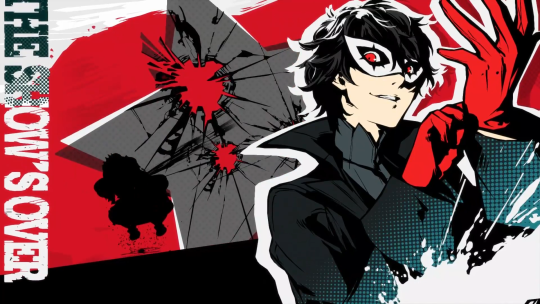
* except for Makoto, because a) I already romanced her before and b)…. it didn’t feel right, her being my first and all. SO SUE ME I’M A LOSER AFTER ALL

So. Here we are again, moving to Tokyo, whoop de doo. NewGame+ means not having to waste days on working out the ropes, so you can focus on the stuff that matters: getting as overpowered as you can in the least amount of time possible. For me, this meant maxing out Kawakami’s social link as fast as I could, because her bonuses are pretty swank – I really could have used the post-Mementos or post-palace massages during my first playthrough too, but kinda forgot about her right after Operation Maidwatch. Well, no more! I was bringing that teacher home left and right at every possible instance, so obviously I ended up maxing her link first. Ergo, we entered a relationship.
I’m not gonna lie: the Kawakami romance is some weird (and arguably illegal) shit. Maybe that kinda set the tone of this adventure from the start, giving me an mc who was 100% ok with romancing his homeroom teacher slash part time maid. Uh… huh. Given that my suspension of disbelief went out of the window right about there, it was easy to pick the “omg i totally like, care about you and stuff” dialogue options that went with it; I mean, I was doing this for science and stuff, no big deal.

That’s why it surprised me that when it was time to romance the next (un)lucky girl, I felt like shit about it. Not because of Kawakami, but because Ann wasn’t some ludicrous dating option pulled out of the “lol what if we let the players date everyone!!” shitpost book. Instead, Ann and the mc had already been through Some Shit together, best friend suicide attempts and sexually abusive PE teachers included, and she was a teenage girl looking for her place in the world. So when Ann confided in me about her feelings and told the mc she loved him, “returning” her feelings –while knowing I was already dating my…. uhh, homeroom teacher slash part time maid– genuinely made me feel like the absolute scum of the earth.
“I can’t do this,” I thought at this point, “Even if these are fictional characters in a fictional game, I feel like shit lying to these girls that I care about them, because obviously that’s not true if I’m so callously dating someone else behind their back. How can people do that in real life if I can’t even do it in a video game? Oh, naïve me! Because my lesson in the callousness of man had only just begun.
Anyway, so. Here I am, dating Kawakami and Ann. I think I figured that lying to my teammates didn’t Feel Very Good so headlining for randos seemed like the better choice to make next: Ohya the reporter ended up being the third girl I romanced, and it was relieving she seemed to understand the unlikely nature of our relationship. “I get that we probably won’t stay together forever,” she was telling me, almost like she knew she was only the third wheel in my extended trailer truck, headed to nowhere fast; the same kinda goes for Tae, the punk rock doctor, whose reservedness somehow made it easier to ignore the serial cheater vibes in the dynamic.
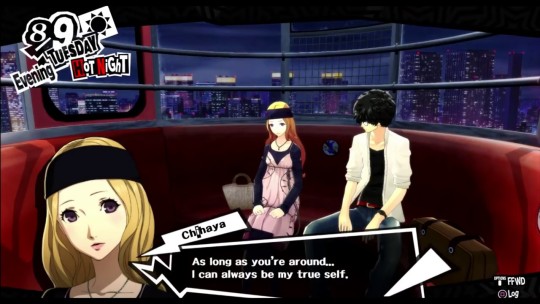
Chihaya, on the other hand, was different. Seemingly a little younger than the other grown-ups, she was already a lot more straightforward about her interest in the mc, and harbored all sorts of weird fantasies about them staying together forever. Which is exactly what I told her would happen. Not! Funny that for a fortune teller she couldn’t see I was also spouting this same shit to four other girls, huh? Chihaya reminded me of Ann, in a way, which is why the Bad Feels actually started to resurface here – it’s one thing to lie boldly in the face of girls (women) who aren’t really that invested in you to begin with, but when it’s people who actually believe said lies… well.
Now, I know, I know. There’s no actual reason to feel guilty, because these choices don’t affect the gameplay in any way. Whether or not the mc is an asshole in some ways will still result in everyone loving the shit out of him, and being sad when he leaves. Sure, there’s the scene after Valentine’s Day where you get beat up for being a cheater and the girls kind of call him out on it, but that’s about it; this isn’t Mass Effect, you can’t go full renegade, etc. etc. But even if the game barely acknowledges the clear disparity in the mc’s words and actions, it’s really hard to overlook as the player, and as I said, it kinda changes the tone of the whole game.

You see, during the course of the story the mc ends up establishing a whole bunch of social links: Ryuji, Yusuke, Mishima and even Sojiro are but few of the guys you end up making heartfelt bonds with too. Only problem is, once you go the Lie Route with the girls, the mc hardly comes across as any more honest with the guys – and this is what really puts a spin on his reliability. Everyone’s always going on about what a great guy he is, but none of them know what a quadruple-timing, lying asshole he is at the same time. And why would they? All he does is tell people what they want to hear!
Apparently the devs of Dream Daddy wanted to challenge the notion that this kind of behaviour automatically leads to “good endings” in visual novels, because it only makes the mc seem a little sociopathic. Sure enough, that’s exactly the word I would use to describe how my mc started to come across in all his social interactions in P5. Well, not all, actually; there was one character whose exchanges with the mc came across as genuine even when virtually nothing else did. Yeah, you guessed it: Akechi.
I’m taking a brief interlude here to talk about Akechi, because my social experiment with the mc’s romances actually ended up underlining how similar he and Akechi are as people. It’s what the game hints at continuously with the whole ~two sides of the same coin stuff anyway, but the point really gets hammered home when you repeatedly watch the mc fake his way through life just like Akechi puts on his own double persona (pun not intended). In that sense, it’s only natural that the two would recognize each other as equals, and that their interactions ring more sincere than any other discussion they have in the game.

But back to serial dating, if you will. After Chihaya, I started dating Hifumi the shogi girl, but to be completely honest I sort of mentally fazed her out; with every new girl I tricked into dating me, the initial unease seemed to diminish until I couldn’t remember what had made me feel so disgusted in the first place. I mean, I was already lying to so many people, what did it matter if I lied to one more, right? It’s not like I actually hung out with anyone ever again after I “entered a relationship” with them, and it’s not like my actions carried over to pre-scripted cutscenes, so who cares, right? Nobody (well, apart from a physical game engine) was forcing these girls to believe my bullshit, so really, the fault was theirs for being so gullible, right!!11
…Well, I might have been able to go along with that type of douchebag logic if I’d only kept dating randos. Since I skipped Makoto, the next girl I got cozy with was Futaba… and this is where the skeezy-ville started to nag on my consciousness again, because like with Ann, you know that Futaba’s been through A Lot: she basically spent the past couple of years as a hikikomori, convinced that her mother committed suicide because of her. Trust is a really big thing for her, so throwing a cheating mc into that equation gets really ugly when you think about how he gains that trust just to betray it. When you add in Sojiro, you’re essentially screwing both of them over while pretending to be a happy little family. If you take these events at face value, it kinda makes you wonder: seriously dude, what on earth is your damage?!
If that wasn’t disturbing enough, we finish with Haru. She is also running from one abuser but, if dating a cheating mc, kind of ends up in the arms of another. Although she enters the story fairly late in the game, it’s no less shitty to listen to her be so grateful for your “support”, knowing you’ve sat through variations of this scene with half a dozen other girls already. I just kind of kept staring at the mc’s poker face (pun not intended, again) while wondering how much worse it seems that none of these choices affect anything tangible in the game, even when the whole theme is helping other people (and shitty authority figures, sure, but mainly helping people).
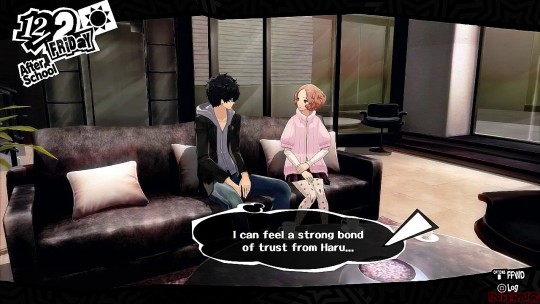
And you know, it’s really that endless poker face that gives the whole thing such a weird ass vibe: this is a 17-year-old kid who’s moved to Tokyo for a year, and ends up constructing a meticulously crafted fake personality that has everyone treating him like the greatest guy on earth. If you perceive this as the intended story (as opposed to the mismatch of a fixed script and optional gameplay choices that it actually is), Persona 5 suddenly becomes a story much darker than its original premise. Who is the real mc, and why is he doing any of this? What is his actual sense of truth and justice, if he spins it so grotesquely to suit his given situation? How troubled does he have to be for this kind of behaviour to emerge, and what caused it?
I know getting busted on Valentine’s Day is played mainly for laughs, but when you put all this together it’s obvious just getting dumped doesn’t even begin to cover the actual consequences of the mc’s actions should have. For the 100% fake personality he’s clearly constructed up until this point, how anyone can still follow him into the depths of Mementos is beyond me. But hey, I know we’re not operating on earth logic here.
Still, as I mentioned, this levels the mc with Akechi a lot – suddenly it’s very hard to condemn Akechi, even in theory, for the route he ended up taking in life, because isn’t the mc basically doing the same thing? Taking advantage of as many people he can to advance his own ends, with the only difference that he ended up on the winning side? Not only that, but it makes it harder to root for the “good guys”, knowing that you’re not a good guy – you’re just some guy with a big enough charm stat to make people follow your fake ideals, whatever those might in reality be.
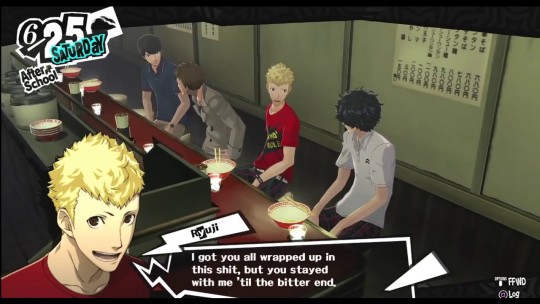
Personally, I was also surprised at how easy it was to go from “this is horrible I hate this I can’t lie to these girls” to the “eh whatever, I’ve done this long enough that I’ve distanced myself from giving a shit”, then back to “oh shit oh shit this is so wrong” over the course of a single game. I know this sounds like a hyperbole, but in that sense I’m… actually not that surprised at how people find themselves ignoring those same patterns in real life. Which is why it’s so disheartening there’s only one scene dedicated to the consequences; it would be so interesting if there was something more tangible to remind the player that yeah, you’re entitled to picking these options, but it does turn the mc into someone pretty damn messed up.
I mean, damn – by December I’d maxed out all my social links, and suddenly had shit all to do, and because I couldn’t sit through a single fake date with one of my fake ass girlfriends again, I ended up making my mc train every day and night just so I had something to occupy my time between going out and murdering things in Mementos and/or a palace. Watching him do shirtless pull-ups in his room I sorta realized: Oh my god, I turned my mc into a high school version of Patrick Bateman. This game sure took a turn.
So I suppose the point of this story time is that while dating anyone in P5 (and most Persona games, I’d assume) is ultimately only a gameplay element meant for the player’s extra entertainment, sometimes those seemingly superfluous gameplay elements can turn into unintentional story elements – in this case, an experiment of how easily lying to one person turns into lying to everyone, and how sometimes it’s not that easy to tell at what point you stop being genuine at all. Wow, them video games, huh? Always a source of profound inspiration.... or something.
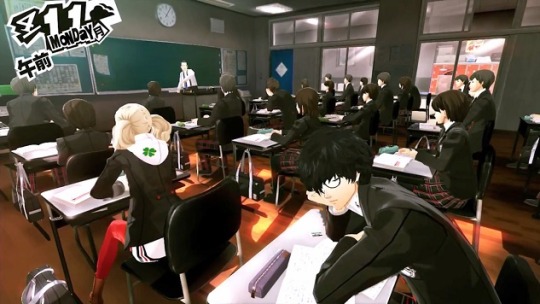
#persona 5#idk what to tag this#maybe i'll add a new category for my rantings#and call it#story time#ok for the sake of archiving i'll also add#meta
97 notes
·
View notes
Text
The Summer of Adventure: Chrono Cross

Original Release Date: November 18, 1999 (JPN)
Original Hardware: Sony PlayStation
Chrono Cross is a game that just about every fan of JRPGs has an opinion on. Put in the unenviable position of having to follow up on what many consider to be the best game of all-time in the genre, Chrono Cross chose to take one of the most difficult routes possible. It is undeniably a continuation of the events of the first game, with its main plot serving to tie up one of the loose ends from Chrono Trigger. At the same time, it doesn't seem to be bound by that game at all. At times, it even appears to treat it with contempt. I want to say that Chrono Cross would have been better off as a stand-alone game, but I'm not sure it could have drawn out the same level of emotion from players had it gone that way. Chrono Cross was praised to an almost ridiculous degree when it first launched, but the backlash on it in the years that followed was one of the biggest I've seen in my whole time in the hobby. What's the deal?
Chrono Trigger released with a bang in 1995, riding on the back of a dream team of talents including Final Fantasy creator Hironobu Sakaguchi, Dragon Quest creator Yuji Horii, and famed Dragon Ball artist Akira Toriyama. Its excellent graphics, progressive mechanics, and compelling time travel hook made it an instant winner. Even with more than 20 years down the road, the game is considered to be one of the finest JRPGs and Super NES games. Some would even put it on their short list of the best games of all time. I have friends who make a yearly playthrough of the game a priority, squeezing the game's finite contents for every last drop of enjoyment possible. It's been ported to multiple platforms including the Sony PlayStation, the Nintendo DS, and iOS.
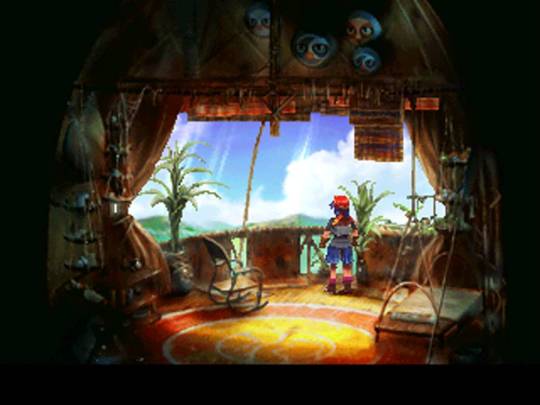
Its sequel would face different circumstances. That dream team had moved on to other things, leaving the less flashy staff members who had shouldered a fair portion of the load of the first game, albeit behind the scenes. The director's chair was occupied by Masato Kato, a well-known game writer who helped pen the stories for Chrono Trigger, Final Fantasy 7, and Xenogears. This was only his third turn as a director, with previous credits on Ninja Gaiden 3: The Ancient Ship of Doom and the Japan-only Satellaview visual novel Radical Dreamers. Perhaps notably, Chrono Cross is also the last game he directed. Naturally, he also provided the story for the game. The game was produced by Hiromichi Tanaka, who would soon take point on Final Fantasy 11. The character designs were provided by Nobuteru Yuki, best known for his work on the anime series Escaflowne.
Considerable talent, to be sure, but the change in directors, designers, artists, and producer made for a game that looked and played almost entirely differently from its predecessor. Besides Kato, the one big returning name was composer Yasunori Mitsuda, the man who had worked himself sick in his composing debut on the first game. Having put a few more games under his belt, Mitsuda was ready and able to deliver a stunning soundtrack that I still think is one of the greatest of all-time. While Chrono Cross had a whole new look and a more confident sound, it was still a great-looking game with some very progressive ideas of its own. One box that would remain unchecked, however, was the time travel motif. There is a little bit of time travel in the story, but you're not the one doing it. Instead, Chrono Cross focuses on crossing between parallel worlds. It's an interesting concept that plays well to Kato's strengths as a writer.
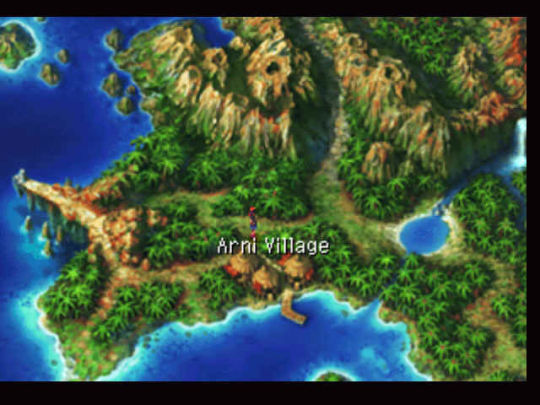
Interestingly, Chrono Cross was the third kick at the can for a sequel to Chrono Trigger. The first, Radical Dreamers, covers part of the same narrative ground. Released only in Japan and exclusively through the Satellaview download service for the Super Famicom, Radical Dreamers introduces some characters that would reappear in slightly altered forms in Chrono Cross, along with a short scenario that would also show up in the latter game. This was only ever meant as a side project, largely existing simply because Kato was annoyed by the loose ends the plot of Chrono Trigger had left. The next potential candidate was the game that would become Xenogears. Initially pitched as an idea for Final Fantasy 7 before another idea won out, it then was planned as a follow-up to Chrono Trigger. After a lot of disagreements, it ended up being its own thing, though it's not hard to spot the connections between it and Chrono Cross.
It was after Xenogears wrapped that Square officially put together a team to create a new Chrono game. The creative talents involved have given some conflicting reasons for the game's dramatic departure from the original game, but the gist seems to be that they didn't feel like rehashing things. They felt doing time travel again would be a cop-out, that a new cast would appeal to potential new players, and that it was important to take full advantage of the new hardware they were working with. As both Tanaka and Kato have strongly asserted, the game's title is not Chrono Trigger 2, so fans probably should not have expected a direct sequel. That kind of feels like a post-hoc excuse to me, but it is what it is.
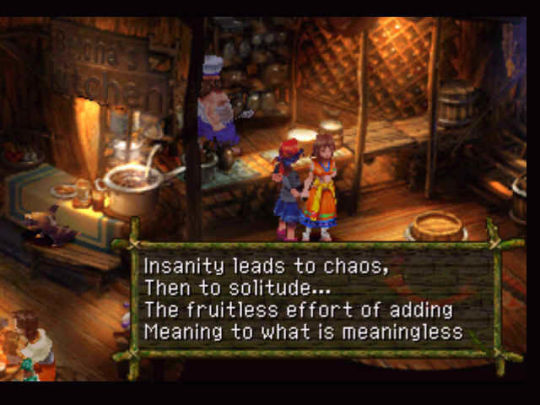
The game released in late 1999 in Japan, but its overseas release would end up coming in August of 2000, not too far ahead of the PlayStation 2 launch. As a highly-anticipated sequel and the culmination of the Summer of Adventure marketing campaign, Chrono Cross came out of the gates like a rocket. The reviews from critics were nearly unanimous in praising the game, with some publications breaking the safety glass on their rarely-used perfect scores to really underline the point. I distinctly recall a major backlash towards American magazine Electronic Gaming Monthly because one of their three reviewers dared to give the game a score of 9.5 out of 10 instead of a perfect score. Given the many shared circumstances between Chrono Cross and Legend of Mana, it's interesting how different the initial reception to each was. But for however much Chrono Cross diverged from Chrono Trigger, it was still quite recognizable in broad strokes. I think that's what saved it from the more immediate negative response its stablemate received.
That said, the negative response did eventually come. It felt like the bigger a fan a person was of Chrono Trigger, the worse they would eventually see Chrono Cross as. Cross had a different, less optimistic tone to it. Rather than focusing on a handful of characters, it chose to spread the love across a huge cast, hoping to fully sell both its world and its high concept. The story broke one of those unwritten rules of fiction. If you give the audience a "happily ever after" ending, revoke it at your own peril. That's just what Chrono Cross did, and it didn't even make a particularly big deal about it. Chrono and Marle died off-screen a long time ago in some random attack from the Porre Army. Lucca's death is an important plot point, but it also happens before the events of the game. Robo at least gets a significant end, but he too does not survive. Ayla, Frog, and Magus don't even appear in the game, with the latter's absence being particularly preposterous as this entire game orbits around his sister, Schala.
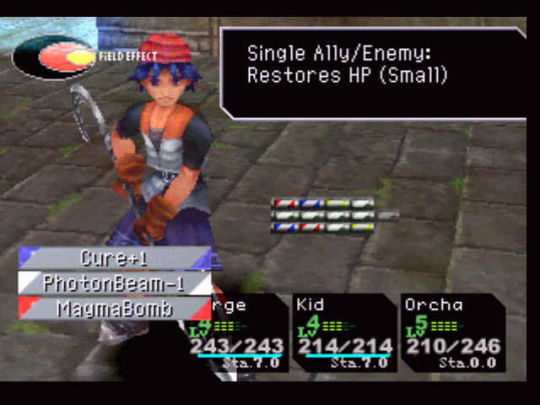
Just in case you think you can delude yourself into thinking the main three aren't really dead, their ghosts actually appear a few times during the course of the game. In short, it was all for naught. Nobody from the main cast of Chrono Trigger got a happy ending, as far as anyone can tell. Heck, you didn't even really save the world. This didn't sit well with many players. Others were put off by the lack of time travel, perhaps expecting there would be some instances later in the game. Even those who could get around these attachments to the plot and characters of the first game were faced with an experience that was almost antithetical to Chrono Trigger.
That game was a fairly light, fast-paced, moderately linear game that wore its messages on its sleeves. Chrono Cross, by comparison, is kind of depressed with existence. The pace is slower, the tone is darker, and the messages are muddier. Although the finished game was heavily pared down from the original plan, it probably could have done with a few more editing passes. For every really interesting, thought-provoking point in the game, there are at least two bits that don't seem to have much purpose at all. Maybe that's intended, though.
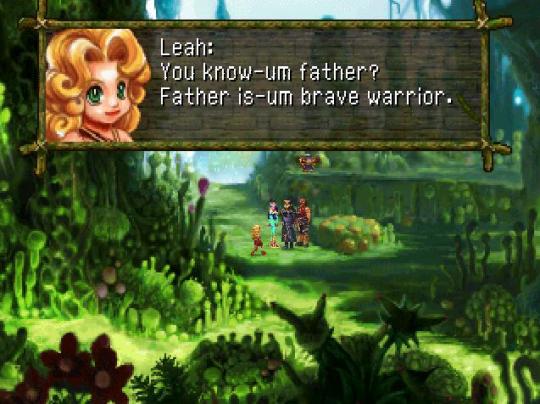
Cross serves as a fascinating counter-point to Trigger in some ways, however. In the latter, your intervention is, as usual for the genre, undoubtedly a good thing. Apart from the early set-up where Marle almost writes herself out of existence, your time-hopping shenanigans never have a negative effect on things, at least as far as you can see. Your presence makes the world a better place, even though you are breaking virtually every fundamental law of nature in doing so. The game ends without addressing this particular karmic debt, and that's fine. It doesn't have to. It's not that type of game.
Chrono Cross has something else to say, though. The premise sees your character Serge traveling to a parallel dimension where he was killed at a young age. After 10 years, this other dimension has a ton of differences compared to your home dimension. The kicker is that many of them make for a better world. Some people are worse off, mind you. But the key is that your existence doesn't make things better for everyone. Indeed, Serge not dying has downright ruined some people thanks to that trusty old Butterfly Effect. One of the more enjoyable aspects of the game is in seeing how people's lives are going in each dimension. At any rate, Serge's death is a good thing for some people. A fact that becomes all the more painful when you discover that Serge was really meant to die. His continued existence comes through unnatural means, and even poses something of a threat to the world order.
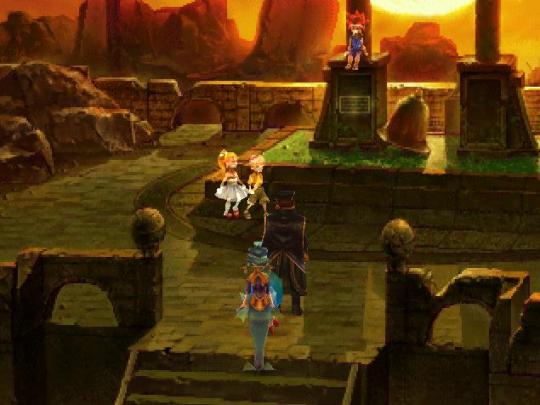
This isn't just told to the player, either. There are a number of situations in the game where you have the option to make an active choice versus just passively letting things play out. In some of those cases, your decision to act makes things much worse for everyone, while inaction ends up with the desired result. Like many of Kato's other stories, Chrono Cross eventually ends up being a little bit too on-the-nose with its theme, with a primary antagonist literally named FATE. From a personal point of view, fighting fate is a good thing for Serge. It keeps him alive. But in many ways, it's a purely selfish act of self-preservation. It only accidentally has a good result. Of course, this is all the work of a seriously convoluted plan on the part of Balthasar, the Guru of Time. It seems that pesky old Lavos is still alive and threatens to merge with the missing Schala. Balthasar set all of the events of the game in motion to bring Serge to the point that he could defeat Lavos, preventing it from becoming a Time Devourer and eating all of time and space.
Like the first game, Chrono Cross has multiple endings. The best one involves trying to squeeze out a puzzle-like sequence of special attacks on the final boss, a sequence that you may or may not pick up on from the clues. Should you manage to pull that off, you'll save Schala and be treated to a somewhat bizarre ending where she ponders the meaning of life in the face of evolution and survival of the fittest. It's pretty clearly Kato talking at this point, mind you. Schala concludes that although individual lives may seem to be meaningless if they aren't significant in the evolutionary sense, every being does its part to lead up to those significant examples. Thus, every life is an important part of the chain, so life isn't meaningless after all. Phew, thanks for sorting that one out.
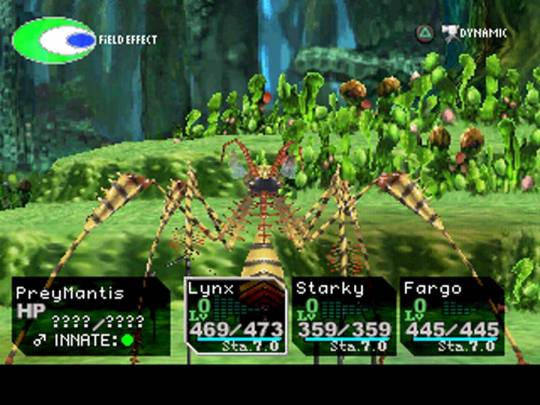
She then signs her letter off in Kid's distinct Australian accent, indicating that her memories have been combined with those of her clone. She promises to find you again someday, sometime. The credits then roll, as a woman who is supposed to be Schala can be seen wandering around various locations in modern-day Japan. It's apparently meant to signal to the player that their very own Kid might be out there somewhere, searching for them. It really only works if you live in Japan, though, since the locations they picked are probably not going to strike a chord with anyone else. To be honest, this is a game full of good ideas and compelling situations, but its main plot ends up collapsing on itself in a way that is highly characteristic of Square games from this era.
This was only my second time playing the game, if you can believe it. I really enjoyed it the first time, but I was definitely high on hype. I wasn't sure how I would end up feeling about it after so many years had passed. I've seen my opinions of Square games I once held sacred turn around in big ways before, and I worried that this might be one of them. At the beginning of the game, as I was enjoying the music, brightly-colored sights, and interesting set-up, I felt that I had perhaps underestimated Chrono Cross. The further in I played, however, the more it started coming back down to Earth. There are too many inconsequential characters, the storyline loses its coherence partway through, and the battle system takes a little too long to sort through in basic skirmishes. This is also a game that virtually demands a guide, and even with one, you're not able to see everything in one playthrough. That's fine, but I don't know that I really want to play this again for a long while. Even the first time, when I was absolutely in love with it, I moved on to other things after getting the best ending.
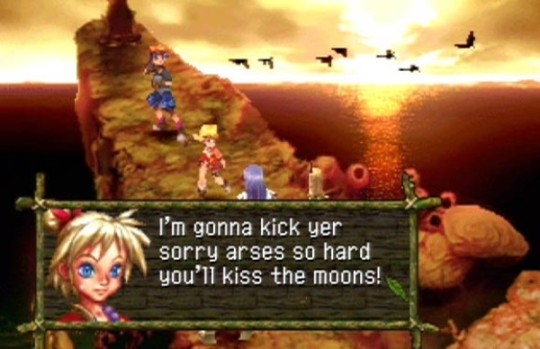
Being a little older and more experienced, I can certainly appreciate some of the ideas the development team tried to apply to the mechanics. That final boss "puzzle" is pretty bad, but in most other respects, I think the element system that governs skills and item use is quite clever. It's a little too restrictive early on, but I like the idea of forcing players to choose carefully what they want in their toolbox. It's a good idea to have a diverse set of skills ready, but if you want to take advantage of field effects, you have to stack certain elements. You might also want to set up a custom set of elements for individual bosses in order to exploit their weaknesses. The only real down point is that this involves a lot of micromanagement that quickly becomes tiresome and isn't totally necessary. I suspect most players will just roll with a general load-out of elements and only change out individual pieces now and then.
I'm always interested in how games try to circumvent grinding. It's been an issue virtually since the inception of the RPG genre, and it's honestly debatable as to whether it's something that needs to be addressed. If players like it, why not give them the option? I guess the problem is that while grinding is often the path of least resistance, it's not fun for everyone. Since it's the most mindless thing to do, people will opt to do it in lieu of trying to reconsider their strategies, even if they don't enjoy it. That leads to people coming away with a poor impression of a battle system that probably would have thrilled them if they had played it without grinding. I think the Japanese focus on intricate combat systems naturally results in designers trying to crack this particular nut.
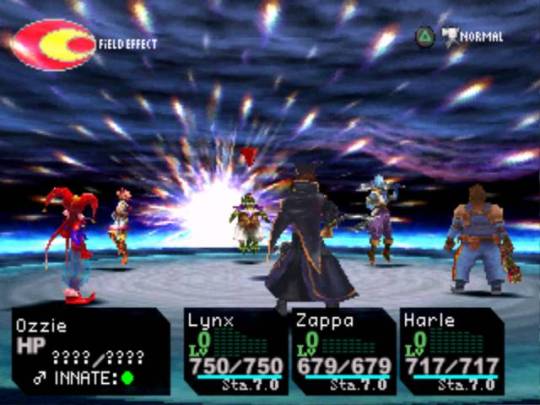
Chrono Cross's approach is to put in hard gates on growth that are connected to your progress in the story. You're given a star ranking that determines how far your party members can grow. Your stats will only see so many gains until you earn a new star by clearing a story boss of some sort. There are other incentives to battling enemies, such as giving you drops that you can use to create new equipment, but you can't simply grind your way past a tough boss. You have to plan your way through it. Luckily, one of the other unique quirks of Chrono Cross assists with that. You can run from any encounter, up to and including the final boss. No, it doesn't make sense from a narrative standpoint, but it makes this one of the fairer RPGs around. Go in, see what elements will serve you best, and if you don't have them, escape.
I think it's that desire to pick away at the accepted standards of the genre that ties the game to its predecessor more than anything. Unfortunately, that's the least likely thing to be appreciated by fans looking for more of the thing they liked before. On top of that, the desire to push the genre in new directions doesn't always work out the way a game's creators might hope for. I don't think anything in Chrono Cross went spectacularly badly, but not many of its innovations proved to be influential. That goes hand-in-hand with its weaker reputation compared to that of Chrono Trigger.
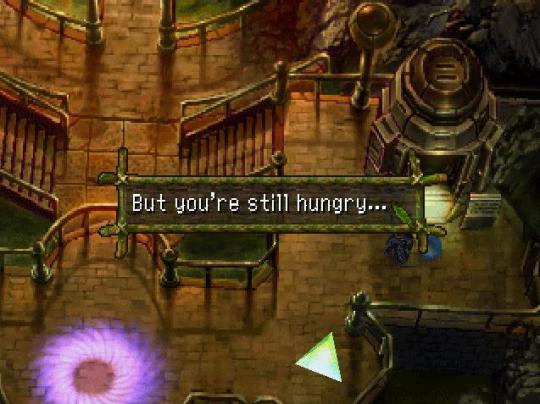
While Chrono Cross isn't entirely forgotten, it does seem like the series as a whole is finished. Chrono Trigger probably has a lot of re-releases in its future, but I'm less confident that Chrono Cross will show up again as anything other than a PSN download. Even Kato's attempt to tie the two games together more strongly in the Nintendo DS port of Chrono Trigger failed to re-ignite interest in Cross. I suppose that speaks to the difficult balancing act that sequels have to pull off. If a game rehashes too much, it will never escape the shadows of those that came before it. On the other hand, if the developer either fails to or chooses not to recognize the qualities that fans appreciated in the original game, history can be swift with the write-off there, too.
It's often the case that when I replay a game, I come away with greater clarity concerning my feelings about it. But even after making my way through Chrono Cross again, I find it hard to nail the game down. I kind of love it. I also kind of hate it. I wish they had cut the fat off it as much as they had with Chrono Trigger. Some of the themes it brings up are brilliant, but others seem like so much belly-button fluff. I think it's a more interesting, more challenging game than Chrono Trigger tried to be. That it failed in many of its ambitions doesn't affect the respect I have for that particular approach. Some small part of me, however, would have been far happier with a safe sequel in this case.
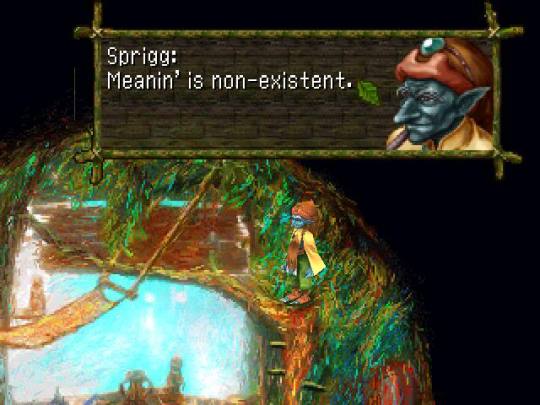
Previous: Threads of Fate
If you enjoyed reading this article and can’t wait to get more, consider subscribing to the Post Game Content Patreon. Just $1/month gets you early access to articles like this one, along with my undying thanks.
1 note
·
View note
Text
Review: Resident Evil 7

[Originally posted on When Nerds Attack.]
“You’re about to see something wonderful.” Jack’s freshly charred skin is peeling off his body. But he’s still alive, and strong. He’s clutching your wrist, pulling it to his face. He wraps his mouth around the handgun you just plucked from the desiccated cop now lying dead on the floor. With a resounding pop, a chasm erupts from the top of his skull. His body falls limply to the ground. You survived, but you didn’t win. Jack will be back. He deliberately ate a bullet just to prove a point.
It’s been a long time since Resident Evil has scared me. For the better part of a decade, Capcom remodeled the franchise that coined “Survival Horror” into gun-centric action games meant to appeal to as wide an audience as possible. Familiar draws were included to bait fans that remember the fixed perspective, tank controlled days of yesteryear — whether it was tangential ties to the sinister Umbrella Corporation, hulking bio-weapons, or the franchise synonymous living dead. More often than not, though, these nostalgic additions felt like window dressing. While latter day sequels like Resident Evil 6 coated their levels in shadows and foreboding atmosphere, at their core, they were third-person shooters. True horror, the kind that the original trilogy is lauded for to this day, was left behind.
With Resident Evil 7, Capcom has finally returned to the franchise’s roots. It takes inspiration not only from its own past but from other stand-out horror experiences in order to rework and revitalize the genre they helped inform. The result is an expertly paced, incredibly tense hell-ride through a literal madhouse — and it’s actually pretty goddamn scary. Long-time fans have been yearning to hear this for years: Resident Evil 7 is pure survival horror.

SWEET HOME
Eschewing the tradition of military trained, boulder boxing heroes, you assume the role of prototypical everyman Ethan Winters, whose wife, Mia, disappeared three years before the story’s start. Beckoned by an ominous email from his estranged love, Ethan travels to an abandoned homestead located in a forgotten slice of southern Americana called Dulvey, Louisiana.
The Dulvey estate is a decaying wreck slowly being digested by the thick marsh that surrounds it. Inside, what’s truly unnerving isn’t how empty the house is, but how lived in it feels. Family portraits and hand-scribbled notes lie side by side with festering trash bags and dirtied pots filled with putrid meat. Somehow, people live here, and your surroundings do a fantastic job of letting you know that there’s something very, very wrong with them.
The new first-person perspective (rather than the third-person view in previous entries) introduces a newfound sense of dread since you’re vision is narrowed and you can’t see what’s behind you. It serves to make the experience eerily intimate and allows you to soak in every meticulously rendered inch of house. Passageways are splashed in pervasive darkness (some of the best shadow effects I’ve seen in a game) while the sound design pummels you with constant creaks, groans, and distant footsteps. Walking through the house is gloriously nerve-wracking.
I won’t spoil the first thirty minutes or so, but I will say the proceeding goes from Zero-to-Evil Dead fast enough to blow a gasket. It’s a joyfully malicious intro that perfectly sets the tone for the game to come — one that’ll have you laughing and recoiling in disgust in equal measure.
ALL IN THE FAMILY

Before long you’ll encounter the main villains of the show: the Baker clan. There’s Jack Baker, the stern head of the household; his wife Marguerite, whose disposition flashes between motherly and vitriolic in a heartbeat; and their son Lucas, the only one of his kin that could pass for normal until you see the bottomless pit of insanity swirling in his eyes. There’s a certain level of camp to the Bakers that the game is unafraid to play with. Only horror aficionados would get this reference, but they call to mind the maniacal Sawyer family specifically from Texas Chainsaw Massacre 2 (just one of many cinemacabre influences found in the game).
It’s apparent there’s more affecting the Bakers than a simple case of the batshit crazies. They’re inhumanly strong, can regenerate severed body parts, and worship the notion of ‘family’ with a murderous zeal. Figuring out what’s wrong with them, and how it pertains to your missing wife, reintroduces a story component absent from the series since the very first game: an engrossing mystery.
Each Baker is tethered to specific areas of the plantation — castellans of their hillbilly castle. But they serve a more dynamic role than just the inevitable boss fight earmarking a section. Jack, for instance, will patrol parts of the house, and if he spots you, will relentlessly chase you down until you he buries a shovel into your soft dome. There’s a sick thrill to tangling with Jack. He’s a walking bullet-sponge and difficult to shake-off until you learn to out maneuver him by running serpentine patterns all around the house.
Marguerite will also guard her part of the residence with a lantern in hand in case an intruder is hiding in the shadows, and when she finds you… well, I hope bugs don’t freak you out. Unlike the horror games these segments are derived from (namely Outlast and Amnesia), RE7 has little interest in being a hide and seek simulator, and uses these encounters sparingly. That restraint goes a long way, making an appearance from “Daddy” feel more surprising and random, keeping players constantly off-kilter as they trek through the house.
BACK TO BASICS

Given the change of perspective and overhauled, backwoods-y tone, you might wonder why Capcom bothered to slap a number on this seeming reboot. Despite its modern influences, the gameplay is most reminiscent of the original Resident Evil. Just like the granddaddy of survival horror, there’s a huge emphasis on exploring your environment, managing inventory, and picking which battles to fight or take flight from.
You’ll navigate the Baker house in search of keys that unlock new parts of the homestead and its surrounding areas. Arcane puzzles will block your progress, but they can typically be solved using simple order-of-operation: find Item A, combine it with Item B, slot Item C into hole. Not exactly Witness level headscratchers by any means, but they serve to break up the tension. And they’re just so quintessentially Resident Evil— a kooky house filled with inexplicably placed puzzles.
Apropos to the genre, the amount of items you can hold at once is limited. Thusly, item boxes — the bottomless chests that are magically linked to each other — return along with the save rooms that harbor them. Whereas completing some puzzles will condemn you to do battle with some unholy aberration, save rooms are the one true respite that allow you to breathe and collect yourself. (Special shout out goes to the calming, ambient melody that plays whenever you reach one of these bastions — that shit is lit).
There’s also an extra meta to how you organize and use items you find. You can find healing herbs and use them raw (I guess… I guess Ethan chews them?) but they become much more potent if you combine them with a Chem Fluid. If you hang on to the very same Chem Fluid until you found some loose gunpowder, on the other hand, you can craft your very own handgun bullets instead of having to forage for them. Combining items also frees up inventory slots which in turn can be filled up with more ammo, health, or key items. It all cleverly underlines the “Survival” in “Survival Horror,” rewarding savvy mixologists with a longer lease on life.
You’ll attain weapons to beat back the creatures of the night, and the UI lets you organize them within your inventory so that they’re mapped to the D-Pad. It’s a useful appropriation of one of Resident Evil 5’s better ideas especially given the fact that digging into your inventory doesn’t pause the action (you’ve been warned).
FIGHT NIGHT

It wouldn’t be a Resident Evil game without monsters. Enter the Molded — humanoid tarman formed from a viscous black goo. They’re mostly slow but they have wolverine claws, their faces are roughly eighty-percent teeth, and they’re dangerous in numbers. Helpfully, they haven’t mastered the art of opening doors, so they’re easy to trap, and you can also block incoming attacks to soak up the brunt of their damage. Eventually, though, you’ll have to go on the offensive.
You’re equipped with a pocket knife early on, but that’s only a rung more effective than harsh language– it’s the handgun and shotgun you’ll be relying on. It’s important to note that, despite the viewpoint, this isn’t a first-person shooter. Aiming down the sights slows your movement to a crawl and can actually put you in harm’s way which means placement is as paramount as precision — a concept not altogether foreign if you played the original games. There’s a value play to using weapons, too: if you mow down every single critter that jumps at you in the dark, you’ll find your clip empty the next time you’re truly up shit’s creek.
Ammo scarcity forces you to plan and act accordingly. Do you feed your last few bullets into a Molded so you can search an area in peace? Or can you evade long enough to save those shots? There’s few things more satisfying than the pus geyser that erupts whenever you relocate a Molded’s head, but I was more thankful to have those shots whenever Jack would burst through a wall like a redneck Kool-Aid Man. It’s the kind of on-the-fly strategizing that has been sorely missing from Resident Evil.
True to genre form, you’ll be tasked to engage in boss fights. Unfortunately, not every battle is a memorable showdown of wits and brawn. I’ll keep it vague, but there’s one sore thumb in the bunch, early on, that forces you to rely on the game’s clunky melee mechanics. Thankfully, the bar raises as you contend with the Bakers. Again, I’m being purposely vague, but one cool bit has you hopping between levels of a decrepit greenhouse as you hunt down a baddie, expertly making use of space, and another is such a wickedly good callback to Resident Evil 4, it’d bring a tear to Leon Kennedy’s dreamy eye.
FOUND FOOTAGE

When you’re not juggling items or tip-toeing in the dark, the game has you watching VHS tapes. Playing tapes isn’t as passive as that, however, since you’ll be tasked to play as the character within the video. It’s a really ingenious narrative tool that not only gives you insight to what the hell happened before Ethan arrived, but also spotlights crucial clues in your current environment. One tape stands out in particular — “Happy Birthday.” In it, you play as an ill-fated cameraman that has to solve an intricate puzzle to escape from a sealed room. The Saw inspired conundrum is by far one of most impressively realized pieces of design the game owns — it had my jaw to the floor by its conclusion.
AMERICAN HORROR STORY
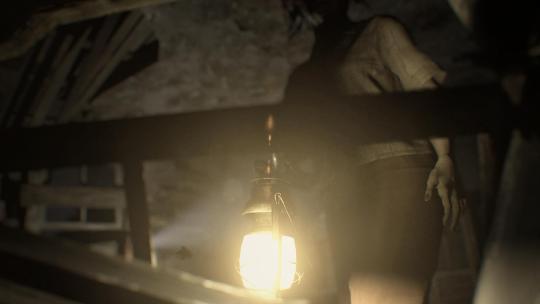
Biological terrorism, global domination plots, superhuman villains… Resident Evil’s stories have arguably degraded into over-the-top comic book fare as the years have gone on. RE7 wisely reigns in its scope to tell the most grounded story in the series since the original. It follows the beats of a low-budget horror movie, and it’s a great direction. Like a lot of micro-budgeted horror movies, this is a plot driven vehicle.
Subsequently, character work is on the thin side, especially in regards to Ethan. His few spoken lines keep him from being a silent protagonist but it’s obvious he’s meant to be a blank slate for players to project onto — sort of in the vein of Half-Life’s Gordon Freeman or mute soldiers from early Call of Duty games. Mia, his wife, fares a little better — and she should; she has five times the amount of lines as Ethan — but at no point would you even think her and Ethan are married if it wasn’t explicitly stated. But it’s a double-edged sword: much of the momentum of the plot is owed to the fact that it doesn’t linger on personal details.
Whereas the first two-thirds of the game are brilliantly crafted and paced, RE7 loses a lot of steam on its march to the endgame. Again, in an attempt to not spoil any surprises, I won’t name the location you reach in the third-act. I will say that it like feels by-the-numbers horror fare — a disappointing contrast to everything the game so confidently builds beforehand. Disappointing, but nowhere enough to derail the experience.
It’s right around here that the game decides to increase the amount of Molded you fight by tenfold, totally inoculating players of any fear the bizarre tarmen might’ve wrought. We’re talking a small island nation’s worth of Molded. While there’s three distinct types of Molded to contend with — including a spider-y leaper who I hate so much — more enemy variety would have spiced up this last stretch considerably. If you can get through this gauntlet of pus-bloods, you’re treated to a Big Reveal, and get to find out what the hell’s really going on in Dulvey. As a fan, I was pleasantly surprised that they found a way to tie these seemingly discrete events back into the greater whole of what Resident Evil is about (while also leaving us with plenty of questions).
HAIL TO THE KING

After one of my very first sessions with the game, I took a break (game manuals used to suggest you do this often when game manuals were still a thing). Naturally, it was night and, of course, I was alone. I absorb a ridiculous amount of horror media, games and otherwise. They don’t get to me very often. Yet, my skin was crawling. I started jumping at small noises. I was watching shadows. I was still bugged out from my time inside the Baker house. The last time a horror game lingered with me like that was when I first played Resident Evil 2 on the Nintendo 64– I was 10.
Resident Evil 7 is phenomenal course correction for the franchise. It’s unashamed of celebrating established cliches but, like any great horror movie, knows how to subvert them. Capcom’s crafted a legitimately harrowing ride that also manages to never sacrifice its playability. While other games of its ilk will try to depower the player as much as possible to instill a sense of vulnerability, Resident Evil 7 smartly balances its challenge with fun gameplay mechanics. I wanted to get right back into it even as the credits rolled (and I did… four times since).
The game feels fresh, yet it builds on time-tested conventions of the genre. Capcom has proven they understand why we loved the original games, and have found a means to modernize that formula. I can’t see the series going back to the over-the-shoulder, co-op shoot-fests. This is the path to stay on. Not just because Resident Evil 7 is one of the best games in the series, but because it’s one of the best survival horror games ever made.
[If you purchase the PS4 edition of the game, you can enjoy/endure the entirety of Resident Evil 7 in PlayStation VR. I’ve yet to make the $400 plunge into Sony’s virtual space, but I did get to play the Beginning Hour demo in VR at Capcom’s booth during last December’s PSX. Though my time with the VR version of the game was brief, I was thoroughly impressed. Anecdotally, I’ve heard it’s the scariest and most immersive way to experience RE7. Apologies for not having more extensive impressions!]
10 notes
·
View notes
Text
The dark, intrinsic humour of W.G.Sebald
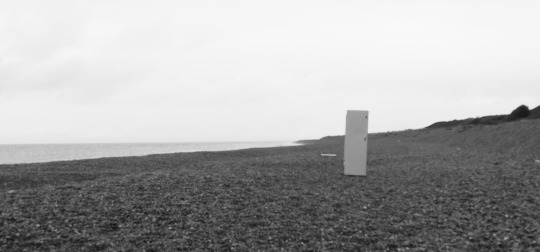
Sizewell beach, with mysterious fridge that appeared one day - photo by author
When I first read W.G.Sebald, around 10 or 12 years ago, as a result of reading some review in either the London Review of Books, or was it the New York Review of Books, I forget which and certainly cannot recall which book was under discussion, I was like many before and since mesmerised by the dreamlike narrative flow, its meandering sentences that wind their way through sub-clauses and conjoin to form paragraphs that offer no natural pause for breath for many pages, its seamless shifts of direction, subject and focus, the aura of melancholy, the obsession with decay and destruction as the only historical constant, the omnipresent references to learning and facts that were often so obscure that verification would have been impossible or at least hard to achieve, even if there had been any point in seeking to ascertain to what extent the author – or was it the narrator, at whatever level, and in that near indistinguishable tone that left one uncertain unless the author constantly reminds us as often is the case who is indeed the narrator at a given point - was indeed imparting knowledge or learning grounded in what might be historically or factually verifiable material, and not least by the somewhat flat monotone of the English language of the translated text that was both natural yet incongruous, given the sad or so to speak dismal quality of so much of the content, and yet which seemed to match the gentle undulations of the ever-eroding Suffolk coastline that is the scene of his pilgrimage in the Rings of Saturn. Which is still my favourite.
What I had not registered, when I had read his main four works first time round, was any sense of the comic as part of, indeed intrinsic to, Sebald’s armoury. The books indeed gave the opposite impression – a hypnotic but constantly depressing perspective on the human condition and human history. But I now smile a lot as I read, in between the melancholy.
In recent months, and in part inspired by my desire to become more fluent (as reader, alas not yet as speaker) in the German language, and in part with an amateur’s interest in the techniques of translation, I have re-read both the Rings of Saturn and Austerlitz, this time in German as well as English, with the two language versions side by side. Or more precisely, around one page at a time in German followed by the same page in English, to see how far I had correctly divined the meaning. It was a very slow but often inspiring process. I saw - and also heard, as I read many passages half aloud to myself - how the German language version (which is the original) has a very different rhythm and tone from the English; it is far more expressive, alliterative and even onomatopoeic in the original, which is no criticism of his very fine English translators.
But above all, I had to read each word and clause closely, often several times, in order to understand the text, and thus gain a far stronger sense of what effect the author was aiming to achieve. And I have concluded – for all the terrible matters that Sebald recalls and recounts – that interwoven in the whole serious Sebaldian enterprise there is also a mischievous and dark sense of humour, almost always swimming beneath the surface and which from time to time emerges from the depths as evidently comic writing.
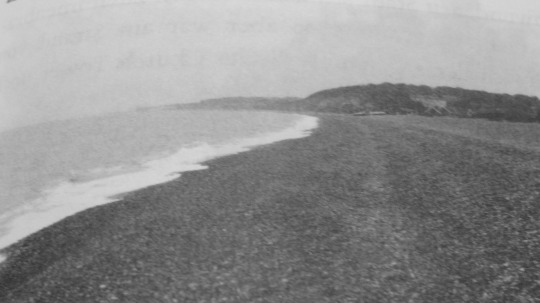
Sebald’s picture of Dunwich empty beach in Rings of Saturn
Or indeed, comic photography. For can we really believe, to take a random example, that Sebald’s photo (p.155 in the English version) of the North Sea at Dunwich, showing a dull unpeopled shingle beach devoid of interest or aesthetic quality, was chosen for any non-comic purpose? Dunwich, of course, was a godsend to Sebald’s general narrative of decay and transience; an example of a once-thriving port that has been destroyed and washed away by the forces of time, tide, storm and erosion. But the photo selected and inserted deliberately exaggerates and ironises the (in reality non-existent) contemporary boring-ness of the remaining hamlet.

Author’s photo of empty Sizewell beach, from which one wife has been ‘disappeared’
Now no one can accuse Sebald of not being mischievous (and misleading). On the very next page we find a picture of the “Eccles Church Tower” standing in the sand, just yards from the sea, which, he tells us, “still stood on Dunwich beach” until about 1890; moreover, “after Eccles Tower had also collapsed, the only Dunwich church that remained was the ruin of All Saints”.
I had never heard of Eccles Tower at Dunwich, but had assumed Sebald would not have made this up… but Sebald never claimed that he was writing pure documentary or accurate material. And he certainly wasn’t in accurate mode on this occasion. The Eccles Tower was so named because… it was never in Dunwich but in Eccles-by-the-Sea, 50 miles away on the north-east coast of Sebald’s own home county of Norfolk! The village and church of Eccles did however suffer a similar fate to Dunwich in that, over centuries, it was washed into the sea. (I learnt all this from a blog by Homo Ludens dated October 2007, though it is written about in more ‘literary’ reviews).

It is inconceivable that Sebald was confused or negligent about the Eccles Tower; since the facts are easily ascertainable by anyone truly interested, he can surely not have been hoping to deceive yet avoid discovery, nor does the insertion add any obvious narrative or other advantage (save maybe to underlines the unreliability of both the narrator and of memory in general). It seems to me that this is one of many examples of Sebald simply teasing his readers with games, amid his many horrific themes, setting them puzzles if they wish to delve further.
I am sadder (but wiser) to learn that there is no evidence that the train on the branch line from Halesworth to Walberswick was ever in the service of the Chinese Emperor in Beijing, as is proposed by Sebald.
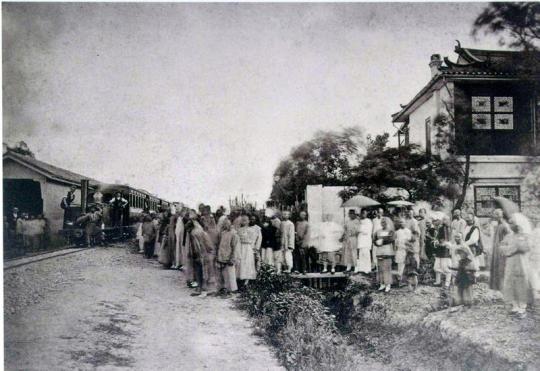
Photo https://en.wikipedia.org/wiki/History_of_rail_transport_in_China#/media/File:OpeningDay.jpg
It is a ‘truth’ that all readers surely yearn to believe, and the link is a literary necessity for Sebald to slide into the tale of imperialist interventions in China in the mid 19th century. Yet the fact that this tale of the Chinese train is pure invention is plain to see, once we realise that Sebald mixes playful post-truth with his more serious intent to recall past sufferings that humans have imposed on each other. He lures us into his false linkage as follows:
“According to local historians, the train that ran on [the branch line] had originally been built for the Emperor of China. Precisely which emperor had given this commission I have not succeeded in finding out, despite lengthy research; nor have I been able to discover why the order was never delivered or why this diminutive imperial train, which may have been intended to connect the Palace in Peking, then still surrounded by pinewoods, to one of the summer residences, ended up in service on a branch line of the Great Eastern Railway. The only thing the uncertain sources agree on is that the outlines of the imperial heraldic dragon, complete with a tail and somewhat clouded over by its own breath, could clearly be made out beneath the black paintwork of the carriages, which were used mainly by seaside holidaymakers and travelled at a maximum speed of sixteen miles per hour.”

http://thelostbyway.com/2013/09/w-g-sebalds-southwold.html
In retrospect, I cannot but admire and smile at the references to unnamed “local historians”, to the author’s “lengthy research” - which, alas!, does not help him succeed in finding out more - and to the unspecified “uncertain sources”.
Over the years, I have read many articles and exchanges about Sebald’s writing, but very few comment on the comedic dimension of his work, and those who do sometimes seem uncertain whether the effect is comic despite the author’s intention, or because he was, in the end, an implicitly witty writer, alongside his other qualities.
In her Introduction to “The Emergence of Memory: Conversations with W.G Sebald”, the American writer Lynne Sharon Schwartz emphasizes
“His dreamlike narratives, meandering yet meticulous, echo the lingering state of shock that is our legacy – not only from the wars of recent memory but from the centuries of colonialism that preceded them, indeed, history’s ‘long account of calamities’”.
But she adds,
“In the Rings of Saturn, to my mind Sebald’s best work, his imagination is given free rein and his digressive bent carried to its most extreme – almost comic – reaches. The swirling paths of thought cast a spell: if the reader is willing to submit, the author’s sensibility will carry him toward ever more tangled and distressing tales of decay, entropy, and destruction.” (My emphasis).
In a brief survey of the various authors’ contributions to her book, Schwartz notes that
“[Tim] Parks, incidentally, is the only writer to mention Sebald’s humor, which glimmers slyly through his pessimism and is often overlooked.”
And Parks himself refers to Sebald’s “accustomed blend of slyness and grim comedy” and describes how
“All too soon, however, and this is one of the most effective elements of comedy in Sebald’s work, the concrete will become elusive; the narrative momentum is dispersed in a delta as impenetrable as it is fertile.”
For me, and seemingly also for Parks, it is certain that Sebald knowingly wove comedy into his darker narrative meanders; and I am equally confident that many (though not necessarily all) of his factual errors (like the Eccles Tower) were likewise deliberately placed, either as a means of sliding the narrative apparently seamlessly in the direction he wanted next to explore, or simply as a game played with the reader.
Others are less sure whether the use of comedy and the falsified “facts” were deliberate. Michael Hutchins, in his contribution on Sebald in another collection of essays, “Authentisches Erzählen: Produktion, Narration, Rezeption”, claims that
“It often remains unclear whether Sebald’s faulty statements represent “learned jokes” or the work of a dyslexic scholar.”
And even the late Jenny Diski seemed uncertain about his comedic intent (or lack thereof). In an article in 2000 for the London Review of Books, she says:
“After a while this super-sensitised melancholy becomes comic. One’s patience is tried as it is with those tormented heroes of Dostoevsky, if you read them after adolescence. For God’s sake, Raskolnikov, get a hold on yourself, pull yourself together. Sebald’s narrator is for all the world a middle-aged existential wanderer, out of place, out of time, and wallowing in every miserable moment, sizing himself up against other grim, unhappy wanderers: Casanova in prison, Stendhal hopelessly besotted, Kafka tormented about his longings and terror of love in a clinic in Riva. There is comedy in the grim solemnity and it may well not be accidental, because, after all, if life is not appalling, it is absurd.” (My emphasis).
In his book “Understanding W.G.Sebald”, Mark Richard McCulloh sees the frequently satirical elements in Sebald’s writing, and clearly views this as intended by the author:
“The overriding mood many perceive in Sebald’s work is still the melancholy, the mournful, the autumnal. If one examines Sebald’s corpus as a whole, however, it becomes apparent that similar appellatives such as “melancholy” and “somber”…are simply too sweeping. There are satirical elements that emerge in his prose, products of his humor and astute powers of observation..”
Sebald has many critics who perceive only the dark side, and none of the humour which I consider to be the natural counterweight to his pessimism. Alas, Alan Bennett is one who only sees Sebald hoving to the darkly depressive side:
“Sebald seems to stage manage both the landscape and the weather to suit his (seldom cheerful) mood… ‘Never yet on my many visits […] have I found anyone about.’ The fact is, in Sebald nobody is ever about. This may be poetic but it seems to me a short-cut to significance.”
Whereas for me, the fact that for the narrator “nobody is ever about” is itself a reflection of the twinkle in Sebald’s authorial eye.
Michael Hofmann likewise fails to see much (well, in fact anything) positive in Sebald. In an article in Prospect magazine in September 2001, entitled “Sebald’s fog”, he not only dismissed his writing as a whole, but pointedly refers to his lack of humo(u)r:
“But what was even stranger was that Sebald operated without any of the rigmarole or pleasantness of the novel. The complete absence of humor, charm, grace, touch is startling – as startling as the fact that books written without them could enjoy any sort of success in England…”
And horror of horrors, in her 2003 New York Times review of “On the Natural History of Destruction”, the literary critic Daphne Merkin (1) sees any humour displayed by Sebald as simply being in poor cultural taste:
Needless to say, the colorless, nomadic universe he inhabits, where the pizzerias are dreary and the hotels unwelcoming, offers few flashes of humor except of the most heavy-handed, ironic variety (the eponymous Jacques Austerlitz recalls ordering an ice cream that turned out to be ''a plasterlike substance tasting of potato starch and notable chiefly for the fact that even after more than an hour it did not melt'').
I think this wilfully misses the broader point that in Sebald, the humour is in fact intrinsic to the very relentlessness of his dystopian narrative. Those constantly dreary pizzerias or hotels never fail to make me smile, knowing their type all too well…
It is true that on occasions – though they are not frequent – Sebald unleashes an overt, darkly ironic polemic, directed against some unsuspecting icon of modern life, great or small. In the Rings of Saturn, his description of the once (but no longer) prosperous and fashionable coastal resort of Lowestoft attracts his most biting prose.

Victoria Hotel Lowestoft with 1954 price list - including for servants. Photo http://www.oldlowestoft.co.uk/?post_WW2...:Hotel_Victoria_1954
The particular victim is the Victoria Hotel (in the English version, it is called The Albion; could it be the publishers feared a libel suit?) which seems in reality to have been a rather genteel establishment, but this is Sebald’s take on it in the mid 1990s:
I stood for a good time in the empty lobby and wandered through the public rooms, which were completely deserted even now at the height of the season – if one can speak of a season in Lowestoft – before I happened upon a startled young woman who, after hunting pointlessly through the register on the reception desk, handed me a huge room key attached to a wooden pear…. That evening I was the sole guest in the huge dining room, and it was the same startled person who took my order and shortly afterwards brought me a fish that had doubtless lain entombed in the deep-freeze for years. The breadcrumb armour-plating of the fish had been partly singed by the grill, and the prongs of my fork bent on it. Indeed it was so difficult to penetrate what eventually proved to be nothing but an empty shell that my plate was a hideous mess once the operation was over. The tartare sauce that I had had to squeeze out of a plastic sachet was turned grey by the sooty breadcrumbs, and the fish itself, or what feigned to be fish, lay a sorry wreck among the grass-green peas and the remains of soggy chips that gleamed with fat.
(The German language original is even better in its display of contempt for the offering – no attempt here at subtlety!). (see footnote 2)
Or take Sebald’s diatribe against the (then) new Bibliothèque Nationale in Paris… For me, this is again comedic, though not in any way that risks causing laughter. It is its sheer relentless grumpiness that – as it progresses - induces a smile in the reader, at least in me. The attributed narrator of this passage, Austerlitz, as cited by the principal narrator (who gives us no name but while doubtless resembling is not necessarily identical to Sebald) searching for traces of his father lost (and almost certainly murdered in a death camp) in the war, takes time out in the book to express at some length his utter loathing of the new library. One feels that Sebald is here hardly bothering to maintain the thin dividing line between himself and the narrator(s) – that he is simply using the opportunity to express his own contempt for the Mitterandian pharaonic building and its Kafkaesque minders; we sense that Sebald himself must have been displaced from the much-loved old Bibliothèque nationale in the rue de Richelieu (which by coincidence is the very same street in which the Paris office of the Conseil des Communes et des Régions de l’Europe (CCRE) was situated when I was its Secretary General…)
“I do not think, said Austerlitz, that many of the old readers go to the new library on the Quai François Mauriac. In order to reach the Grande Bibliothèque you have to travel through a desolate no-man’s-land in one of those robot-driven Métro trains steered by a ghostly voice, or alternatively you have to catch a bus in the Place Valhubert and then walk along the windswept river bank towards the hideous, outsize building, the monumental dimensions of which were evidently inspired by the late President’s wish to perpetuate his memory whilst, perhaps because it had served this purpose, it was so conceived that it is, as I realized on my first visit, said Austerlitz, both in its outer appearance and inner constitution unwelcoming if not inimical to human beings, and runs counter, on principle, one might say, to the requirements of any true reader.”
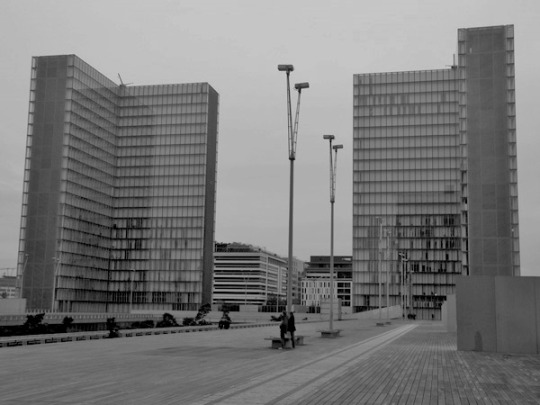
Photo via https://ilovearchitecture.wordpress.com/page/2/
And so on and on, not releasing its prey for pages, nor pausing for paragraph breaks:
“When I first stood on the promenade deck of the new Bibliothèque Nationale, said Austerlitz, it took me a little while to find the place where the visitor is carried down on a conveyor belt to what appears to be a basement storey but, in reality, is the ground floor. This downwards journey, when you have just laboriously ascended to the plateau, struck me as an absolute absurdity, something that must have been devised – I can think of no other explanation, said Austerlitz – on purpose to instil a sense of insecurity and humiliation in the poor readers, especially as it ends in front of a sliding door of makeshift appearance which had a chain across it on the day of my first visit, and where you have to let yourself be searched by semi-uniformed security men. The floor of the large hall which you then enter is laid with rust-red carpet, on which a few low seats are placed far apart… And of course, Austerlitz continued, you cannot leave the red Sinai hall for the inner citadel of the library without more ado; first you have to put your request at an information point staffed by half a dozen ladies, whereupon, if this request to any degree exceeds the very simplest contingency, you take a number, like a visitor to a tax office; you then have to wait, often for half an hour or more, until another member of staff calls you into a separate cubicle, as if you were on business of an extremely dubious nature, or at least had to be dealt with away from the public gaze, and here you must say again what it is you have come for and receive the relevant instructions.”
Even quoting these passages at some length fails to give their real feel, since it is precisely their being embedded in the constant unending flow of thoughts and prose that gives (for me) the clear feeling that Sebald is having a kind of malicious fun, a verbal revenge on those who created and now control the new fortress-library and jealously guarded and restricted access to its store of knowledge. And yet the humour is always embedded in the most serious; the overt purpose of Austerlitz’s research is his quest for a father lost to him, but who was no doubt destined – with assistance from the French authorities - for the Nazi death camp. Thus the comedy, which undoubtedly infuses his prose, is dark indeed.
For my final example of Sebald’s humour, I turn to Vertigo. Now, Vertigo – like the Rings of Saturn and Austerlitz - can hardly be deemed light relief; to cite Jenny Diski’s LRB review again
“Sebald’s vertigo is caused by the centrifugal force of uncertainty that pervades everything, including our consolations.”
Nothing evidently humorous there; yet as she later says, “After a while this super-sensitised melancholy becomes comic.” Her problem, as I have cited above, is that she is not clear whether the intent was humorous, or merely the effect. But, to take an example from Vertigo (p.103) cited by Tim Parks, can one really doubt that Sebald was quietly joking when he describes the narrator’s reaction to the sight of a beautiful nun and girl in a railway compartment?
“Opposite me sat a Franciscan nun of about thirty or thirty-five and a young girl with a colourful patchwork jacket over her shoulders….The nun was reading her breviary and the girl, no less immersed, was reading a photo story. Both were consummately beautiful, both very much present yet altogether elsewhere… I admired the profound seriousness with which each of them turned the pages. Now the Franciscan nun would turn a page over, now the girl in the colourful jacket, then the girl again and then the Franciscan nun once more. Thus the time passed without my ever being able to exchange a glance with either the one or the other. I therefore tried to practice a like modesty, and took out Der Beredte Italiener, [“the eloquent Italian”] a handbook published in 1878 in Berne, for all who wish to make speedy and assured progress in colloquial Latin.”
The Eloquent Italian! Yet Parks can only - rather comment,
“Only Sebald, one suspects, would study an out-of-date phrase book while missing the chance to speak to two attractive ladies.”
A page of the alleged phrase-book’s translation is offered us in a picture adjoining this text, with a few words or phrases underlined by someone… in English, these would be ‘all saints’, ‘Carnival’, ‘angel’, ‘sin’, ‘fear’, ‘truth’, ‘lie’ and ‘pain’…
The two females, as the train approaches Milan Central Station, insert bookmark or green ribbon into their respective tomes, and when it arrives “disappear”, leaving the narrator standing on the platform claiming a sense of having been abandoned but still able to pose ludicrously grandiose and meaningless questions, and to generalise from his own momentary attraction to the duo, to the generalised human yearning to copulate and populate:
“What connection could there be, I then wondered and now wonder again, between those two beautiful female readers and this immense railway terminus which, when it was built in 1932, outdid all other railway stations in Europe; and what relation was there between the so-called monuments of the past and the vague longing, propagated through our bodies, to people the dust-blown expanses and tidal plains of the future.”

Photo of Milano Central Station via https://commons.wikimedia.org/wiki/File:Skateboarding_at_Central_Station,_Milan.jpg
Here, Sebald has descended into surely conscious self-parody – the questions are meaningless, as he knows, and no answer is given. All the narrator does is stroll down the platform, and buy himself a map of the city. A city map which contained on its front, we are told, an image of a labyrinth, and on its back a claim to be “Una guida sicura per l’organizzazione del vostro lavoro” - “A secure guide for the organisation of your work”.
I cannot finish without citing one eminent source that supports my own view of Sebald:
“[His books] are notable for their curious and wide-ranging mixture of fact (or apparent fact), recollection and fiction, often punctuated by indistinct black-and-white photographs set in evocative counterpoint to the narrative rather than illustrating it directly. His novels are presented as observations and recollections made while travelling around Europe. They also have a dry and mischievous sense of humour.”
The eminent source is of course none other than Wikipedia – and against the last sentence we find the following addition: “citation needed”. Well, here I am.
Postscript
In reading quite a lot of articles about Sebald and his use (or non-use, or abuse) of humour I was happy – since my blog is named “Refractions”, to find two comments that refer to the Sebald as having a “refracted” view of the world:
“Sebald’s refracted and sometimes alienated views of both his native Germany and his adopted English homeland have had astonishing resonance in the German- and English-speaking worlds.”
Note on Amazon.co.uk page to W. G. Sebald - A Critical Companion (Literary Conjugations) Paperback – 1 Jul 2004
I was immediately hypnotised by the curious prose style, so flat and ostensibly inconsequential, which describes a kind of meditative interior monologue, not at all the world as it is seen and described by an ordinary person, but a view of the world seen through a glass darkly and refracted through the strange and sometimes uncomfortable imagination of a dyspeptic and exceptionally knowledgeable, middle-aged professor of German literature, whom one presumes has never been married and who decides to take a long and entirely purposeless walk round the shores of East Anglia meditating on aspects of its history and what he sees en route.
Charles Saumarez Smith Review of Austerlitz, The Observer 30 September 2001
Footnotes
(1) I know almost nothing about Ms Daphne Merkin but her review leaves me with a very, very dim view of her sense or sensibility - she says this in the same essay:
Who else but a gloomy, deskbound intellectual would warm to a narrator who chooses as his ''favorite haunt'' the Sailors' Reading Room in Southwold, which is ''almost always deserted but for one or two of the surviving fishermen and seafarers sitting in silence in the armchairs, whiling the hours away''?
Speaking for fellow deskbound gloomsters (not sure about the intellectual bit) I can assure Ms Merkin that the Southwold Sailors’ Reading Room is a wonderful, peaceful place overlooking the sea, in one of England’s favourite (for the middle classes, at least) coastal resorts.

Photo of the Sailors’ Reading Room via http://www.geograph.org.uk/photo/2607778
(2) The German passage, concerning the delicious fish and chips:
Dieselbe verschreckte Person ist es auch gewesen, die später in dem großen Speisesaal, in dem ich an jenem Abend als einziger Gast saß, meine Bestellung entgegennham und die mir bald darauf einen gewiß seit Jahren schon in der Kühltruhe vergrabenen Fisch brachte, an dessen paniertem, vom Grill stellenweise versengten Panzer ich dann die Zinken meiner Gabel verborg. Tatsächlich machte es mir solche Mühe, ins Innere des, wie es sich schließlich zeigte, aus nichts als seiner harten Umwandung bestehenden Gegenstands vorzudringen, daß mein Teller nach dieser Operation einen furchtbaren Anblick bot. Die Sauce Tartare, die ich aus einem Plastiktütchen hatte herausquetschen müssen, war von der rußigen Semmelbröseln gräulich verfärbt, und der Fisch selber, oder das, was ihn vorstellen sollte, lag zur Hälfte zerstört unter den grasgrünen englischen Erbsen und den Überresten der fettig glänzenden Chips.
1 note
·
View note
Text
Ok, strap yourselves in for me reacting to an hour long cutscene. Die-Hardman is president now and finally takes off his mask permanently. I feel we've been robbed because Tommie Earl Jenkins has an incredibly expressive face, much less stoic than Reedus and Mads. Looks like all of the preppers and scientists are at the briefing as DH explains that though extinction is inevitable, it is our duty to savour each moment and the promise of tomorrow. Sam steps out of the briefing and Deadman catches up to tell him they used Bridget's umbilical cord to pull him from her beach, but it was too late as her beach had already gone. Damn he was gone a month, meaning exponentially longer on the inside. They followed the revolver connection instead.
"The stick that became a rope" that's a nice way of tying in with the themes of nonviolence and cyclical storytelling. I like that.
Now Deadman's talking about Cliff. His "common law wife" was Lisa Bridges. And says John/DH killed him, which we already knew. Now DH is apologising for killing Cliff and says it's because he loved Bridget so much. He also says he's called DH because Cliff wouldn't let him die and he says he loved Cliff as much as he loved Bridget and is now torn up that BT Cliff didn't kill him. This is some powerful acting here, probably the single most emotionally raw performance in the game. Reedus and Mads are great at what they do, but they do largely stick to the moody, broody thing.
DH says he thinks Cliff brought him back as penance to make things right and Sam says that's bullshit, "if you aren't scared of death, how can you value life" which, while a little cliche actually resonates in this moment without feeling clunky. "That gun won't help you here" is repeated, again, reinforcing the nonviolent ethos of this new America.
Oh damn. Lou's gone. Decommissioning order came through and she's no longer online, as Deadman's points out BBs are not strictly speaking ever alive. Deadman disconnects Sam from the network temporarily, so he can take off his cufflinks if he wants to allow him to go wherever he needs to without being tracked by the UCA but when he takes Lou to the incinerator to prevent a voidout he will be reconnected if he hasn't done so. Sam embraces him and sets out, but Fragile stops him.
She says Fragile Express has been made the first official courier company in the UCA but also that she didn't kill Higgs, she let him choose: death or eternal solitude on the beach, and he killed himself.
I feel like there's a whole lot of expodumping going on that could have been more naturally peppered throughout the story. That Higgs reveal could easily have happened at the time instead of now. It has no punch now it's been at least 4 hours since then if not more.
Ok. One last delivery. Same as the first one. Another breathtaking piece of music to score the final mission as the camera pulls way back to see the full beauty of the world. It is quite powerful and I do almost get a bit teary. Like I keep saying, Kojima knows how to use music to sell a moment.
Sam arrives at the incinerator and connects to Lou and flashbacks begin again. Bridget and John discussing Sam as a BB candidate or a foundation... to build the Chiral network I presume. Repeat of the scene of Cliff giving Sam an astronaut and John comes in and they shoot the shit. More replaying of scenes, Cliff and Bridget arguing, John scheming with Cliff to escape with Sam. For some reason he has to shoot his wife too, I presume because as an act of euthanasia, but it's not really clear. Mads sells the subtle emotion well entirely through expression, showing how far performance capture has come. He kisses her forehead before killing her and I realise I think this is the only time we've seen her face. Does it count as fridging if the woman was essentially never even onscreen or came out of the fridge in the first place? Once dead her soul leaves her body and we see it from the repatriation camera and fly into Sam. So I guess, like Mama sharing a body with Lockne, maybe Lisa does with Sam.
Replaying of Cliff's death, John tries his best to save him and stop the Bridges staff.
Sam is now there in the flashback too, but imperceptible to other characters, except Cliff it seems at the end. Cliff tells him as his son he's his bridge to the future. A hereditary legacy. Clunkily then immediately over explained as "before you I was like any other Cliff a dead end with no way forward," and underlines that Sam brings people together and bridges them to the future.
Bridget shoots twice and Cliff falls to the floor, but bb Sam is hit too in what is probably the most horrible thing I've had to witness in a video game that isn't even that violent or gory per se. Bridget screams and breaks down, thus explaining her comment about the two shots that started it earlier and why she was so desperate to send Sam back.
We follow bb Sam through the seal to the beach. Ahhh, so the cross on the chest of the dolls and Cliff was a mirror of the scar Bridget left when healing his gunshot wound. I'm now trying to think if we ever saw Sam's belly button before now. Cliff is out in the waters of the beach wading out as Bridget places Sam into the sea to repatriate.
We're back in the tank now looking at John and Bridget. It seems in the shooting, being that it severed the umbilical cord, Sam no longer has his ability to be a BB since that connection is severed. John wonders if they should risk putting a repatriate out into the world, but Bridget says she'll raise him as her own.
Back in reality we see Sam has removed Lou from the tank and placed his cufflinks in the incinerator instead. A nice symbolic visual of burning his shackles which is surprisingly not overplayed, but given they seem to have been designed like handcuffs explicitly for this visual moment and literally any other design would have made more sense in-world, probably shouldn't heap too much praise.
He's desperately trying to revive Lou in a hwartwrenching scene before finally succeeding and leaving the facility. Outside it's raining, but the rain is normal and neither of them age. It's unclear what caused this, whether it was because of the separation with Bridget's beach or because Lou's been released but it's a quiet victory all the same, remarkably restrained as an ending that leaves a sense of satisfaction.
So it's all over, but before I sum up I wanted to share one of the more poignant quotes which is actually in an email from Heartman "About Sam's Return" unlocked upon completion. He talks about how in thousands of years, if intelligent life walks the earth again after the inevitable sixth extinction, they would find fossils and maybe even some of our records. "We cannot hope to guess how much the will understand about who we were. After all their intelligence will not be like ours ... (they will have) different conceptions of what it is to die. But it matters not if they never understand who we were. All that matters, in my opinion at least, is that they know we were here."
I think that's the best summary for the key argument of Death Sranding, that humanity is driven by its connections and quest to leave the world better than we found it. A legacy, something to remember and be remembered by. On these themes, I cannot fault it. It works so well in terms of gameplay and story synergy on that front that Ibthink the story would have been greatly improved if it had been significantly streamlined to focus solely on that. However, I can't deny the cool visual and atmosphere of the BTs, Cliff, all that jazz, but Bramelie was character definitely too overwritten and didn't have the charisma nor connection to back it up. She wasn't the Boss from MGS3 she was a mere plot device. Saying over and over "I an the extinction entity" just underlines that. Cliff absolutely worked for me, his whole story, acting, design; superlative.
Higgs definitely shit the bed as a villain. Quirky charisma only gets you so far and I still don't really get why he wanted to blow up the world. The Englert thing just made it weirder. Oh and some endgame journals reveal he was beaten as a child. Whoop de doo, what lazy writing to try and create empathy for a villain, especially when it's all delivered in an email.
Fragile, Mama and Lockne were... there. Typical Kojima women, supporting the protagonist but never really doing anything of their own accord. Their backstories wrought with uncalled for violence and tragedy.
Deadman was fun, good performance by Jesse Corti on vocals, as was Heartman. Given they both served almost exclusively as expobombs they still felt rounded enough to be interesting. I feel it's not entirely a coincidence that Kojima gave his director friends the most interesting characters.
Sam himself was played with minimalism, but not to the point of seeming wooden or unfeeling. Reedus showed surprising depth with relatively little material when compared with some of the support characters.
Gameplay I've already talked about enough, but it does astound me that on approaching 45-50 hours (forgot to check stats) it still remained fun to deliver parcels and traverse the world.
Overall, do I recommend the game? Yes, if you have the time and willingness to be open to something new. No if you hate weird shit and don't like the sound of the concept. If you don't like the sound of it, you probably won't enjoy playing it.
As to this play along. It was a fun experience articulating my thoughts as I went, particularly with a game as long as complex as this, but I did often find myself torn by relaying events and actually commenting on them. It was a lot of pausing for writing and interrupted play and I think, ultimately, I probably wouldn't do another, or do it in a different way.
0 notes
Text
Forget everything you know about Turkish football. Dream of a completely different system. “Greet” a world that brings-up good citizens and football players, educating them the best way they can, offering the best opportunities, planning their development … Welcome to the prosperous land of football, the “peaceful side” of football. This is Altinordu… However our topic is not agriculture. We will be taking a look at football, where consumerism is as striking as a slap on the face.
FOOTBALL IN TURKEY =CONSUMERISM What do you think of when one says Football in Turkey? Last year I had asked this question in my column and here is my answer: “Football players who are more into fooling the referee than playing the game… Directors who are more into populism than projects to carry clubs further, executives who are puppets to populism… “Referees” that manage to somehow outshine the game… Conspiracy theories that have become to be the main issue of endless sports programs on TV. Millions wasted and millions disappointed!… “We are faced with the most tiresome aspects of a beautiful game that can lead millions with just the game on the field. The big picture can be summarized with a single word: consumerism…
CARRY OVER: FRUSTRATION We seem to have forgotten the main actor of a game with which 80 million youth, modern facilities, European standards nationwide are constantly bragged on. Football players … While there are numerous football players out of the 15 million expats in Germany, the 80 million nation falls short to come up with 11 names that no one would “object” to! While we have the oldest football players of Europe in our national league which allows foreign players, it is hard to find the Turkish players among the 11 that come out the field to play the game. So what is “success” when we seem to have put aside production so severely and started looking for “pret-a-jouer” players? A big fat nothing! We have a national team that has last played at the 2002 World Cup and then in 2012 Euro Cup they were more popular for premium scandals than the goals they scored. We could not manage to create the “National Team of the next decade” with Abdullah Avci, Guus Hiddink or Fatih Terim now we repeat our efforts with Mircea Lucescu. Our clubs are far from achieving success in Europe with games won every once a while. However the loans continue to increase primarily with the major teams. Despite the increasing curve of broadcasting rights in the last 20 years. As a matter of fact consumerism craze is not limited to football. It is possible to talk about similar problems in training players for basketball all the same. So what is the solution? In a nutshell production …
Altınordu
Altınordu
Altınordu
Altınordu
Altınordu
Altınordu
Altınordu
Altınordu
Altınordu
“GOLDEN”ARMY OF TURKEY Anyone can come up with random names if we were to come up with teams that do not train new players, have no plans for the future, saving the day in Turkish world of sports. However there is a single name that comes to mind in the past 2-3 years when we talk about “production”: Altınordu… Imagine a team that started up with ideals that are now said to be “non-existing” in Turkish football with current status. A team that participates in games with all Turkish players within the TFF, and almost making it to the Super League in the past 2 years … They target achieving the Super League with a completely Turkish team one day … A team that believes in the talent of Turkish youth and explain that they can compete with their well-trained European opponents… In my words “the peaceful side of football” is Altinordu…When they came up with a Project that amazed everyone in Izmir they embraced the slogan “The Golden Army (Altinordu) of Turkey” as they soon began to turn all spotlight on their achievements.
DON QUIXOTE OF FOOTBALL To talk about the starting point of the project. Better expressed when defined as the lead actor of a fairytale … Chairman of Altinordu, in his own words the fudiciary of Altinordu, Seyit Mehmet Ozkan. His tale begins in Bucaspor. Laying the foundations of wonderful youth setup, in the Yellow-Navy colored club of Izmir, Ozkan fell off with the management of the club when he decided to pursue his dreams in Altinordu, which he incorporated. In his words he is the Don Quixote of football … Or rather the gardener of football … he first monitors the views on football in Turkey. “We aspire the 6 days, 22 hours of a world where everyone else is after consumerism, focused on results with spending as much as 2 hours in excitement. As the gardener of football we trust the Turkish youth, will train them and produce” is what he said when he started everything. In the current status he defines Altinordu as the “Greenhouse of Football”.
CHILDHOOD DREAM First of all take a note, if you ever crossroads with Seyit Mehmet Ozkan and happen to talk about football do not mention the word “president” he surely does not like it. He is so natural, sincere and open hearted so this football lover can be called “brother” or “Mr.Ozkan” may be a better choice. His passion for football is so much so that it goes back all the way to his childhood. In other words a child, who had not had the chance to become a football player, dedicates his life to provide the opportunity for thousands of young players. “Seyit mehmet Ozkan, son of machinist Chief Kenan… Any father would understand. Those who had not had the chance to do something they wanted so much the passion burning them would be delivered on to their son. The thing which Chief Kenan lacked the most has been education and although his son was so passionate for football every time they spoke he would advise his son to study showing him the pen in his pocket saying “I have always been defeated against this son, you will overcome this obstacle son.” Although that did not do it all, when he found out that his son was in training with Kalespor, he went directly to the management and said the following: “let me know how much the managers pay the club and I’ll pay more so you let Mehmet go his own way” and leaves an amount of 5 thousand Turkish Lira on the desk and ends the story. So that was the day that Mehmet Ozkan, made up his mind. He went to his mother and said the following: “My father won’t let me play football, but one day I’ll be very rich and let all children play football.” So that’s how we come to today.
THE FAIRY TALE THAT BEGAN IN 2012 The 2012 incorporation of Altinordu and the new horizons for the club with Seyit Mehmet Ozkan is the key to training young players. We are talking about a project which was so successful that Ali Koc, one of the most important businessmen of the country, referred to them at his campaign for chairmanship of Fenerbahce, within only 6 years. When he took out, Ozkan had a set target in mind. When the Turkish Youth is given the chance, proper training and education there is no reason for them to be unsuccessful. Here is what Seyit Mehmet Ozkan, thinks of football in Turkey: “I am somewhat of a Don Quixote, who decided to invest in football 10 years ago knowing that the children of the country have not been supported by investment and provided with opportunities and shown tolerance. No one does such a thing. When you look out of my window you can see that there is no production of football in the country. Think of the players that come up as the snowdrop on the mountains. They turn up on their own. A football player in Turkey can only find his true potential at the age of 25, his knowledge enriches and devices a professional attitude. Whoever plays football develops for better, those who don’t fall back. If the necessary investment is made to children at the age of 5-6 they can achieve success almost in the beginning of their 20s. This is the reason why we have to invest.”
NATURALITY FROM CHICKEN TO COW! As a matter of fact Altinordu does achieve this, once you step into the club facility you ae amazed and naturally say: “No way!” … The European standard grass fields, pas walls, dormitories, dining halls, conference halls make the most elite teams envious. All the while children who are lucky to wear the Altinordu jersey live neutrality to the fullest. They collect their eggs from the hen raised in the facility… That’s not all they milk the cow in the facility when they want to drink milk. Expand your imagination … Their daily menu is planned by nutritionists who calculate the daily intake of nutrition and calories suitable for athletes. They are tutored by private teachers, learn English. This place is just like dreamland.…
THEY ARE JUST THE BEGINNING So what is the result? You ask. The most successful young-player team of Turkey is the result. The Altinordu project is at a state where everyone is envious. This deep rooted club in Izmir is proud to have revealed two star players to Europe. One of them is Cengiz Under wearing the jersey for Rome making us proud, the other being Caglar Soyuncu who has become the favorite of Arsenal in Germany and Freiburg. These two successful players also wear the jersey of the primary National Team of Turkey, and they are just two examples of what Altinordu has to offer Turkish football.
SELECTIVITY IS CRUCIAL IN TRANSFERS! We need to underline an important issue at this point. It is not that easy to transfer a player from Altinordu, where they have been trained with such hardship and effort! It is not just about money! The team that the young football player will go to is selected according to certain criteria, the young player culture of the team and the tendency of the trainer in giving chance to young players are important… That is why Altinordu is selective about clubs that they will send their players to. For example sending players to the 3 major teams of Turkey is not likely as they are not so supportive of young players! Do you think it is a surprise that Cengiz Under played in Basaksehir for Abdullah Avci, who is supportive of young players and transferred to Rome due to his performance there? As a matter of fact, no! This is a result of the strategy applied by Altinordu. Just like the unchangeable article on the contract for players stating that “a dividend of the future deal” will be paid to Altinordu!
THE PRESIDENT WHO DOES NOT WATCH THE A TEAM For those who know about the team, Seyit Mehmet Ozkan does not enjoy watching A Team games! He is more interested in his “children” that are the products of his Altinordu facilities, trained from scratch. When everyone else is watching the games of the A Team, Ozkan would be watching the U19 or U17 teams’ games! This will continue to be so until the day that the A team players are all from the foundation of the team. From Ozkan’s point of view the A teams are all set-up of “players that come and go”. When the A Team forms a full-foundation team that is the time he will take his place in the audince to enjoy the game.
NOTES
A good citizen then a good football player Altinordu, incorporated in 2012 and soon became an “exemplary project” for Turkey though it is not only dedicated to training “football players”. As soon as you walk into the facility you will see their motto everywhere, and realize that there is a bigger picture. Their motto summarizes all: Good individual, good citizen, good football player …You can find the detailed definition of the notions in their webpage. The list for being a good individual is as follows: justice, humility, honesty, friendliness, silver tongue, hospitability, respect, love and helpfulness. The list for being a good citizens is as follows: stance, empathy, awareness, sharing, reasoning, loyalty and patriotism. The list for good football player is: awareness for those who have moved on to pro, courage, seriousness, enthusiasm, hard-work, endurance, solidarity, belief, development, pride, beat and compatibility are elements that they need to acquire.
Philosophy makes the difference The element that makes Altinordu different from other clubs is their philosophy. In most football club foundations the target is to “Train football players as soon as possible to be sent to the A Team, show them off and sign them out.” However when we log-into the corporate webpage of Altinordu, and check the visions “Get the children of the country involved in sports, contribute to their sportsmen-ship and elect the “naturally talented ones” to provide them with ‘advanced football training’ to get them to be supreme quality and capacity to become ‘real’ professional football players” is what we come to see. One is surprised to read it. When we think of the football system in Turkey this seems to be talking about IphoneX in a country that recently found out about mobile phone technology! Short for long: when you step into the training field you are greeted with a massive billboard with the phrase: What brings you here is your talent. What will keep you here is your character!
Add to you bucket-list, watch:
U12 Cup As we have been saying Altinordu is a completely different world. So is the U12 Izmir Cup, organized by the club in the last 5 years … It is a perfect world for those who love football for the beauty of the game. Watching raw talents that have recently moved on to teen hood from childhood, it is priceless to watch their struggle throughout the game.
THE GREENHOUSE OF FOOTBALL; ALTINORDU Forget everything you know about Turkish football. Dream of a completely different system. “Greet” a world that brings-up good citizens and football players, educating them the best way they can, offering the best opportunities, planning their development … Welcome to the prosperous land of football, the “peaceful side” of football.
0 notes